Cerebus (1990) #139-150 by Dave Sim and Gerhard
So, Renegade Press is now a thing of the past, so all I have to do in this blog series is about 150 issues of Cerebus, and then Cerebus Archives and Glamourpuss, and…
Let’s get to it.
Sim starts off with a jibe at people who didn’t think there was enough Cerebus in Jaka’s Story…
The first issue in the Melmoth sequence sets the scene quite nicely: We’re in a bar/hotel on the way up to Upper Iest, but almost down in the lower city. (Cerebus is often kinda vague on where it’s set, so that’s nice.) But… doesn’t the mountain look taller than it used to? I remember it at being squatter…
The first issue is Normalroach getting used to Cirinists running the show.
So Normalroach can’t even kill the Most Horrendous Waitron Ever. It’s not really the most auspicious start … it’s just not that funny?
All of the issues in this batch are 40 pages and up (I think), with the longest counting in at 56 pages. There’s just 20 pages of Cerebus material, though, so it’s due to Sim printing a buttload of letters, as well as printing various bits as back-ups. Here we have a Stephen Bissette 24 hour comic, which was a craze at the time. People are still doing them, I think? It’s Scott McCloud’s invention.
Then we start the story: It’s all about Oscar Wilde’s last days.
Remember that Oscar guy from Jaka’s Story? That’s a different Oscar. Here we have Oscar Wilde complimenting his writing, saying how ingenious the storytelling was… or, to put it another way, Dave Sim complimenting himself on his storytelling.
(The prose bits in Jaka’s Story were pretty bad.)
Sim isn’t really experimenting that much with the art as in his earlier days… and when he does, it’s not as successful as his earlier days. This just looks awkward.
Finally! A page of Connie Lingus and her favourite book.
Jaka’s Story ended with Cerebus returning to the tavern Jaka danced at… and she had been taken by the Cirinists. He spends most of Melmoth in this semi-catatonic state… which I’m not sure makes sense. So — is he assuming that Jaka is dead? Is that a natural assumption to make? He knows that Jaka is Lord Julius’ niece — does it make sense to jump to the conclusion that the Cirinists would kill her for dancing in a tavern? He found Missy (the doll) — but surely Cerebus doesn’t know how important that doll is to Jaka?
I know, we’re talking about Cerebus here, and 90% of questions people have about characters doing stuff is “well, they’re kinda stupid”, and that goes double for Cerebus himself. Still, here it just seems egregious: Sim needs Cerebus to just keep still for 12 issues, so … this is what he came up with, I guess: He’s catatonic because it’s convenient for the story.
It makes some emotional sense, though. But as readers we’ve just read that Jaka is fine and well (sort of), so it doesn’t make all that much dramatic sense.
And I’m not sure the bit about gold does, either: Cerebus has given the tavern owner a gold coin as payment (apparently one of seventeen in circulation in Iest), which makes the tavern owner very rich indeed, because Cerebus had basically had all gold coins removed from circulation.
But… no city is an island (except island states) — gold is plentiful outside of Iest. If gold was this valuable, then surely people from outside would come in, buy up all the property, and make gold plentiful again. And… the Cirinists have all of Cerebus’ gold, so why aren’t they letting it rain, building all the stuff they find useful (they’re big on social reform).
It’s… it’s as if Cerebus is written by somebody with little sense of how economics work.
(Is that a *gasp* I’m hearing?)
This is the best letter that arrives.
An excerpt from a 24 hour comic by Scott McCloud. I like this style — he should have done more in it.
Gerhard build a model of the tavern to better draw it.
Heh heh. Prince Mick (Jagger) had to get a haircut.
As usual, Sim’s only way to make the plot progress is by having things happen by accident, so he just has all these people from the past happen to walk by the tavern Cerebus is sitting outside. At least this time there’s some semblance of logic to this: Anybody walking from/to Upper Iest will pass by this tavern, since it’s on the winding road up the mountain. (I’m not sure that bit actually makes that much sense, either — it seems awfully narrow if it has to carry all the goods needed up there…)
Sim does his own 24 hour comic, and it’s about what a bitch this woman is. (She may or may not stand in for all women who goes to bars.)
Sim doesn’t answer any of the letters, and I’ve only skimmed them, but there seems to be an awful lot of these… er… people who have… er… problems… with women.
At the start, the previews/extras are all by pretty big names, but that sort of dissipates — instead we get a bunch of people that are up and coming, like Daryl Cunningham here. Sim was big on self publishing those days, and I think most (all?) of them are self-publishers.
Sim weighs in on what word best describes women.
Finally! Something happens! It’s a mystical vision of Sim/Astoria being the same or something. It’s nice, and I was really excited for a couple of pages.
Oh, yeah, I haven’t mentioned that about half (or more?) of the pages are taken up by scenes of Oscar Wilde dying in bed while his friends are caring for him. And writing letters. The friends are kinda under-developed as characters? I’m guessing the text bits are actual excerpts from their letters, but it’s hard to tell the friends apart.
I’m not sure these bits are totally successful.
Sim introduces a new character — a waitress who does uptalk? So she talks like this? You know?
I wasn’t quite sure what Sim was going for here… but it turns out that she’s really nice person — she takes care of Cerebus, and slowly brings him back to life. It’s therapy? But unconscious? You know?
The back-up things turn even stranger. Was Sim just printing whatever at this point? (Constantine Markopoulos.)
Sim also prints a Corben excerpt from Corben’s unfortunate 3D computer modelling phase.
Michael Moorcock apparently writes in with a graceful note to tell Sim that he doesn’t want to receive any further complimentary copies of Cerebus.
And Neil Gaiman (!) does a 24 hour comic about emperor Heliogabolus, who sounds like a party dude. But does he exist?
Elagabalus[a] or Heliogabalus[b] (c. 204 – 11 March 222), officially known as Antoninus, was Roman emperor from 218 to 222, while he was still a teenager. His short reign was conspicuous for sex scandals and religious controversy.
Sim comes to the conclusion that being gay (as abhorrent as he finds it) is just like being a comics nerd (as abhorrent as we find that).
Wilde dies. It’s kinda moving.
Oops! It turns out that the Moorcock letter was fake. Oops!
Did I mention Sim’s reliance on coinkidink as the driving force in the “plot”? Yes, indeed — here where the two Cirinist guards just happen to be chatting about torturing Jaka, the love of Cerebus’ life, a couple meters away from where Cerebus is sitting.
Now that’s Grade A worldbuilding!
Cerebus then kills the guard, making everybody go “boo yah!”, and then…
… we helpfully get a flashback to somebody infodumping facts about Cirinists to Cerebus.
It kinda feels like Sim has just given up on giving any structure to the story (as it is), and is just winging it. I mean, he’s still relying, endlessly, on all the story elements he did in the first dozen issues, but seeding mysteries/information for future events has pretty much stopped, and he has to resort to convenient infodumps instead.
Ivan Brunetti! Does a fumetti! It’s vaguely amusing.
Ng Suat Tong writes in The Comics Journal #154, page 37:
DAVE SIM IS A CONSUMMATE and, at
times, very subtle satirist. He is the epitome of
the opinionated asshole, and his Cerebus re-
mains one of the few truly profound works
available in comics. Melmorh is the fifth book
in Dave Sim’s Cerebus epic. It is a milestone
of sorts for Sim, because no other artist has been
obstinate or crazy enough to devote himself
solely to the production of more than 150 issues
of a comic. As a result, Cerebus reflects the
growth and changing concerns of its creator.[…]
Would a dedicated artist like Sim insert ir-
relevant comedy at the beginning of such a
serious drama? The possibility exist, as he
has a tendency to soften the brooding intensity
of his scenes by juxtaposing gag sequences. On
the other hand, his intentions might be the exact
opposite of this — that is, to intensify the mood
of the serious segments of the story. An example
is in Melmodl #7, when archbishop Posey gets
frightened by his own reflection. This seven-
pagecomic sequence follows a “painful” scene
in ‘which Oscar attempts to get Out Of bed.
However, by the seventh page. when Posey is
sentenced to five years of hard labor by the
Cirinists, the reader is trying to stifle a yawn.
Sim’s’ technique is faultless. but the sequence
is too familiar, especially to a generation brought
up on Saturday morning cartoons. Weighty
drama like Melmoth is diluted by such juxtaposi-
tions. and the overall story suffers as a result.[…]
The Oscar Of Melmoth is a mere shadow Of
the witty intellectual portrayed so vibrantly in
Jaka ‘s Story. Wilde suffered from a bacterial in-
fection of the middle ear (otitis media as a symp-
tom of tertiary syphilis) and died Of an acute
inflamation of the brain (meningitis). Oscar is
thus shown with a bandaged ear and in a severe
febrile state. With each issue, he grows increas-
ingly emaciated and confused. In an age before
the advent of penicillin, Wilde’s condition was
largely untreatable. Sim effectively depicts the
confusion, dementia and suffering which would
have been evident in Wilde’s gradually deter-
iorating condition. A minor slip-up is seen in
Melmoth #9 when Ross returns to lest at Turn-
er’s behest. Ellmann states that Wilde “had a
fortnight’s beard” at this point in time, but Sim
omits this in his illustrations.
The near-verbatim transcriptions Of Ross and
Turner’s letters, together with Sim’s keen inter-
pretation of them may not, however, be suffi-
cient to produce any significant emotional im-
pact upon the reader. The portrayal of Oscar in
Jaka ‘s Story may help to elicit some sympathy
from readers, but the fact is that real life has
dictated that Wilde’s death would be neither
remarkable nor exceptionally moving. The
tragedy of Wilde’s story lies in his eloquent
defence, conviction, imprisonment and rapid
decline in the space of three years. These events
are not found in either Jaka ‘s Story or Melmoth.[…]
There is a significant subplot which runs
through Melmoth that concerns Cerebus. At the
start of Melmoth, he is seen clinging tightly to
his sword and Jaka’s doll, Missy, totally deva-
stated by the sudden loss of his loved one. (A
recent interview with Steve Bissette [Comics
Interview #1071 reveals that Sim had remained
similarly unapproachable and contemplative
after breaking up with his girlfriend.) One can-
not help but notice that even as Oscar sinks
deeper into the arms of death, Cerebus acquires
increased confidence and vitriol. For example,
Melmorh #7 begins with Cerebus engaging in
some acrobatic nut-eating and exchanging some
icy words with a neighbor, an improvement over
his usual blank stare in the previous issues. Im-
mediately following this, a transcription of Reg-
inald Turner’s letter to Robert Ross states, “I’m
afraid it’s all over with Oscar.” Cerebus’ gradual
return to normalcy culminates in an act of vio-
lence that closes the novel. It is a watershed of
sorts. Sim has never depicted violence quite so
graphically before. The reader experiences a
sense of exhilaration and release which is almost
cathartic. This feeling is heightened by the fact
that the previous 38 issues had moved along at
a deliberately leisurely pace.[…]
Melmorh addresses many things, but it is first
and foremost an artist’s tribute to a great literary
figure. When did Sim’s interest in Wilde begin?
Was the desire to do a biography of Wilde a sud-
den whim which would have been better served
in a mini-series? •How much sophistication
should we allow a work like Cerebus? Only Sim
has the answers to these questions. The reader
can either trust that Melmoth fits into the
thematic whole Of Sim’s epic Or debase this
particular segment as being and
pretentious. Sim has stated that to avante-garde
cartoonists, Cerebus is little better than a Marvel
comic, but in an artform where works of erudi-
tion and pathos are sorely lacking, Cerebus is
a stream in the desert.
Jason Sacks writes in Amazing Heroes #197, page 68:
Sometimes it’s harder to write a
positive review than to write a nega-
tive one. With a negative review, one
can ate least pick out (and pick on)
those aspects of a comic that are
poorly executed. But what can you
say when a comic is very nearly
perfect?
Cerebus #150 is the halfway point
of what arguably may be called the
greatest comic series of all time. Dave
Sinis art is as brilliant as usual, the
plotline is fascinating, the cover is
subtly striking and even the lettering
is head and shoulders abcwe any comic
on the market either yesterday or
today. All of this almost goes without
saying.
Oh, so Cerebus did assume that Jaka was dead?
Also it’s super unclear that the reason Cerebus is so shell-shocked is because he thinks Jaka is dead. I had to read that elsewhere to understand. Why does he think Jaka is dead?
*:
Melmoth is a tragic book superbly executed. The shorter length (a mere 250 pages) suits the subject perfectly – a breath of fresh air after the literal weight of earlier volumes. This is a thoughtful, literary book, with intertwining plots, that is nothing less than a pleasure to read.
I always really liked this storyline because it was such a departure from Cerebus‘ story, and it was a good example of Dave’s storytelling skill even when he wasn’t working with his own characters. I know for a lot of people, it was a bit frustrating having Cerebus as a supporting character for 45 issues, but it obviously makes the conclusion of this book exceptionally intense. I think, too, that we all maybe needed a bit of a break from the aardvark after finding out just how terrible he really is. However, it was a harbinger of things to come—Dave would come to see Cerebus as a bit of a public forum for his own opinions, eventually to the detriment of a large portion of his reader base.
I think Melmoth is fine — Cerebus’ apathy and stirring from that apathy is well rendered — it’s just… not that interesting?
Or perhaps my problem is that I just don’t have anything to say about it. Writing this blog post has brought home to me that I don’t really enjoy writing about Cerebus: There’s too much that annoys me about it. And plenty of other people have nattered on about Cerebus endlessly, so it seems pointless.
I don’t think these blogs about Cerebus is much fun to read, either, so I’m just going to bail. Besides, I think it’s pretty much downhill from here? If I remember Mothers & Daughters correctly, the only thing of importance that happens is that Astoria shows up and says that all the plots and mysteries that had happened in the first 100 issues of Cerebus were just piffle? I may be misremembering, and now I’ll never find out!
Yes! I FAILED! My Aardvark Vanaheim / Renegade Press Total Re-Reading project is an abject failure! I’m going to stop here, with 150 (well, 149) issues to go.
*phew*
That’s a load off my mind.
So everybody (heh heh) waiting for my oh-so-insightful comments on, say, Going Home — sorry. Ain’t gonna happen.
The End.
This blog post is part of the Renegades and Aardvarks series.
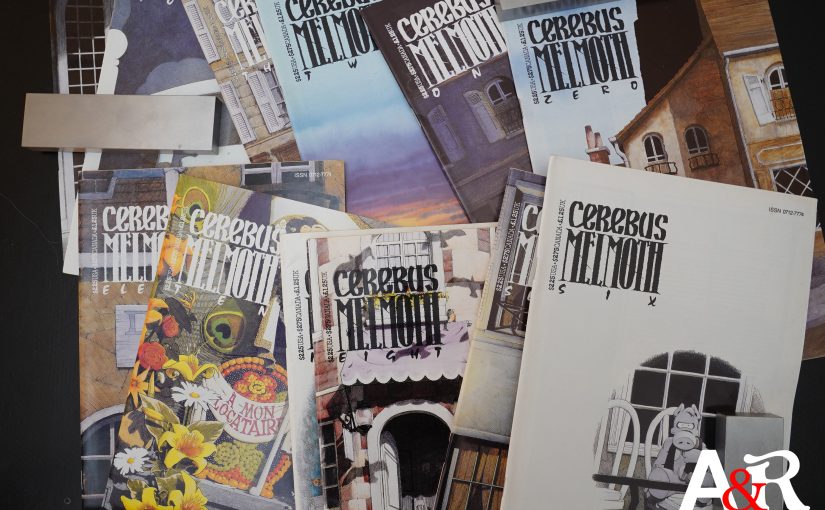
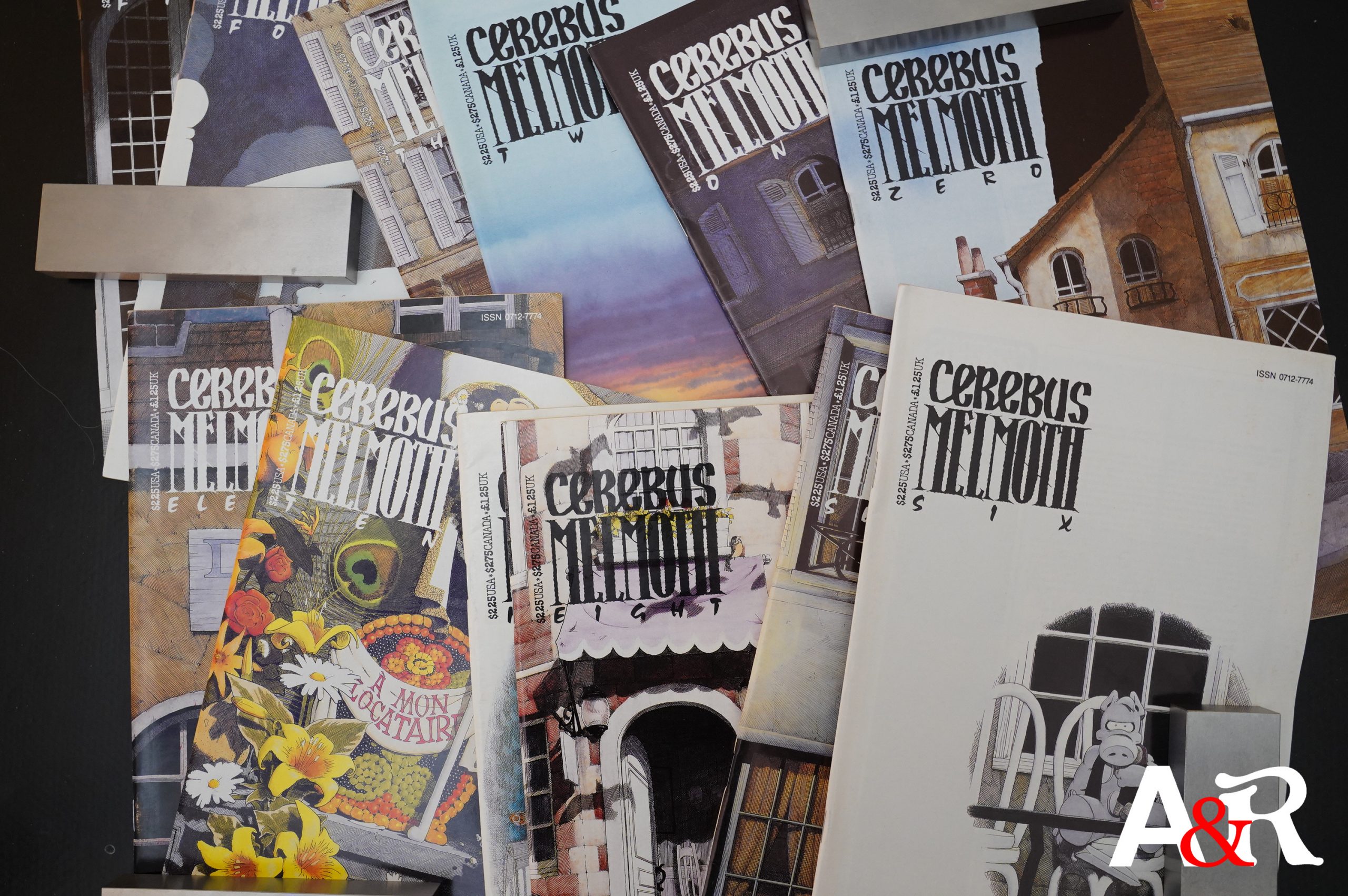
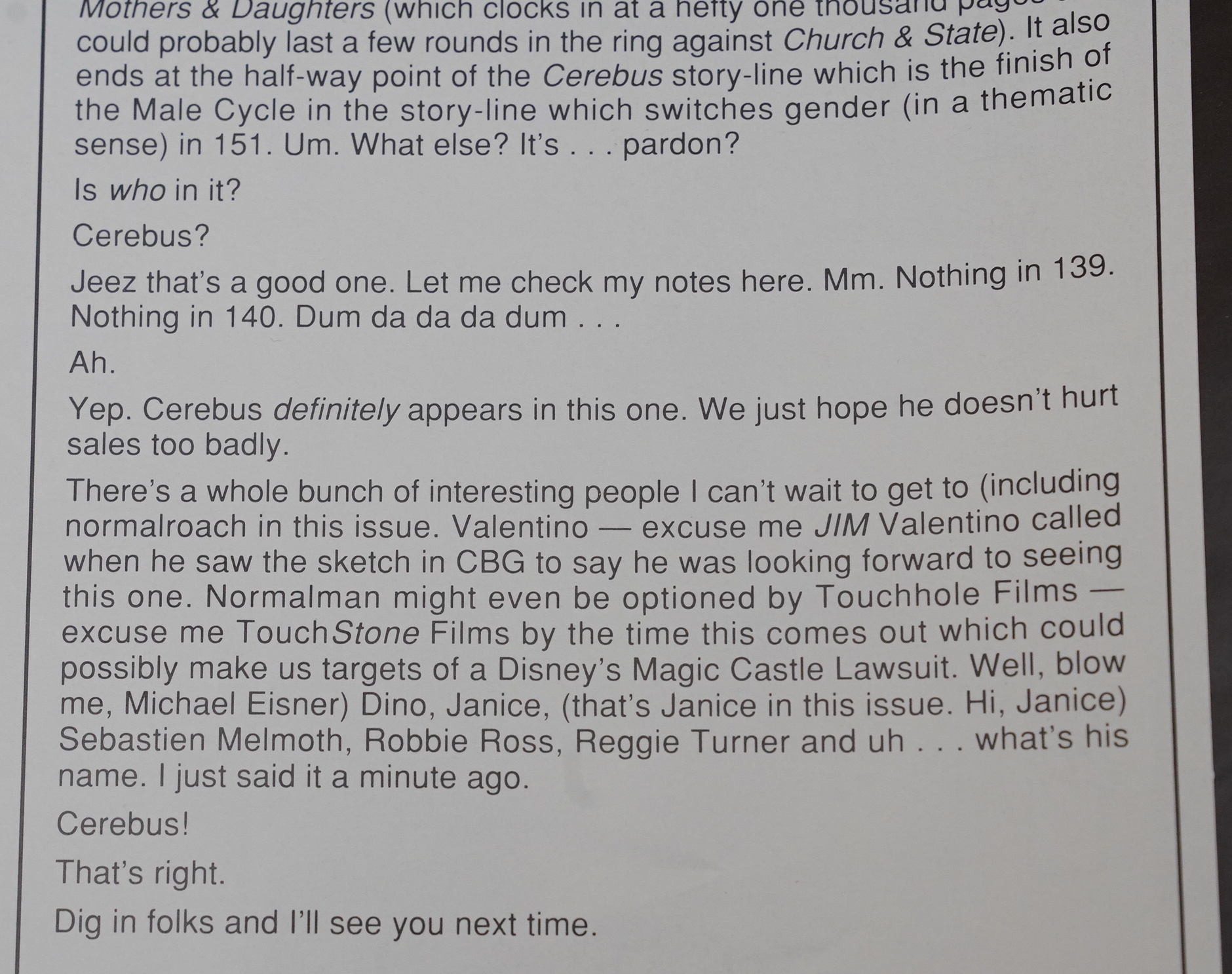
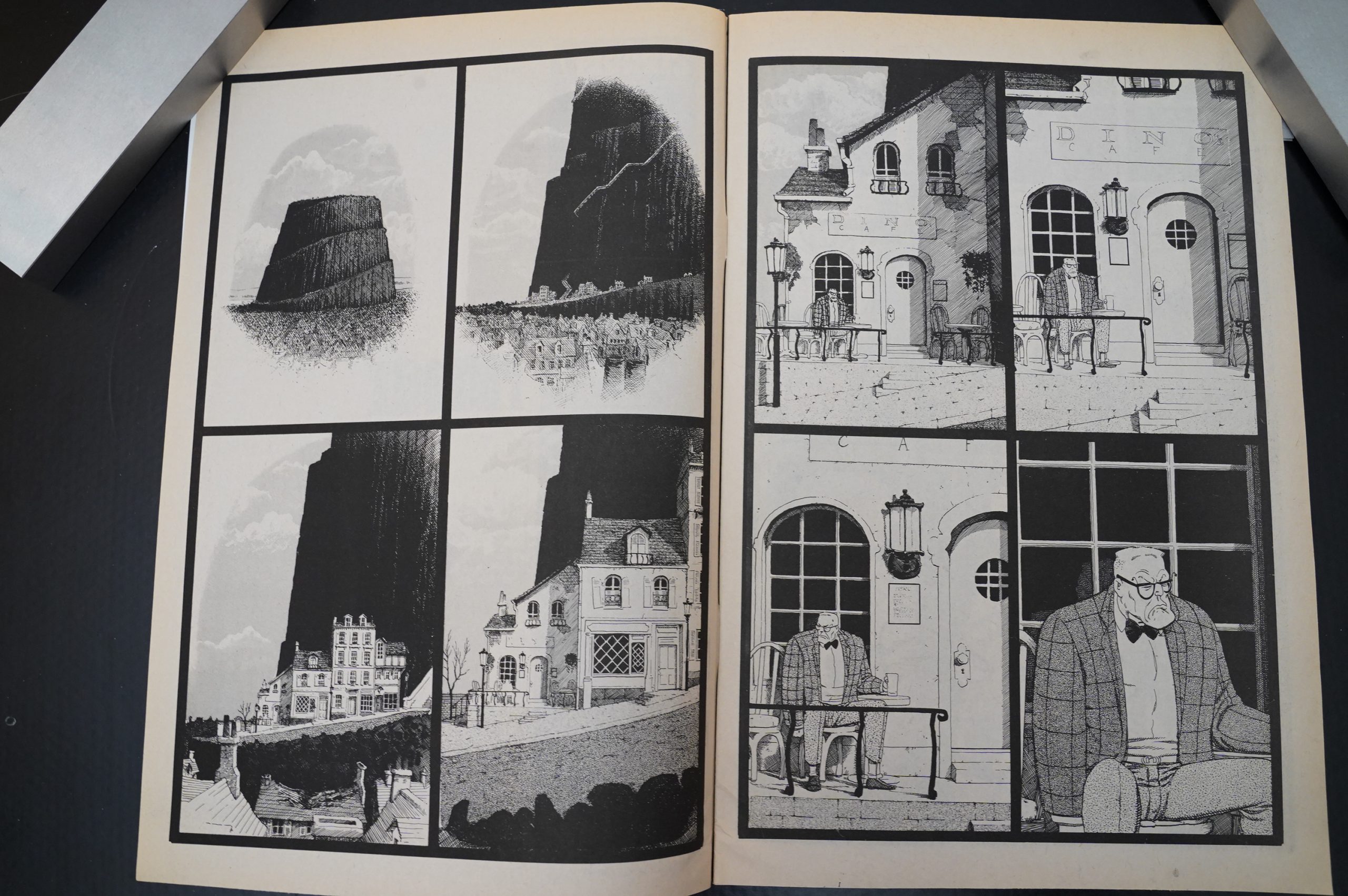
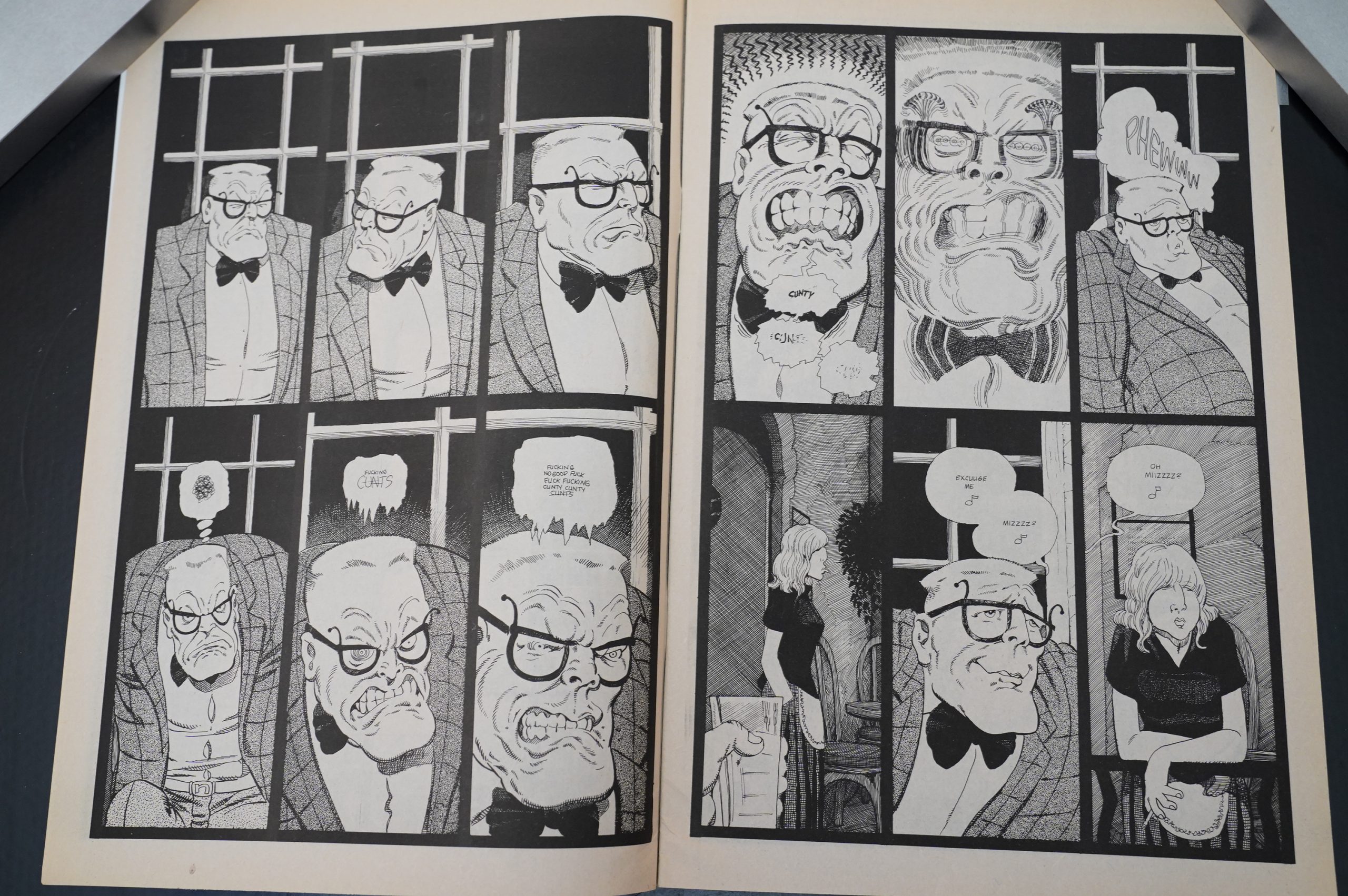
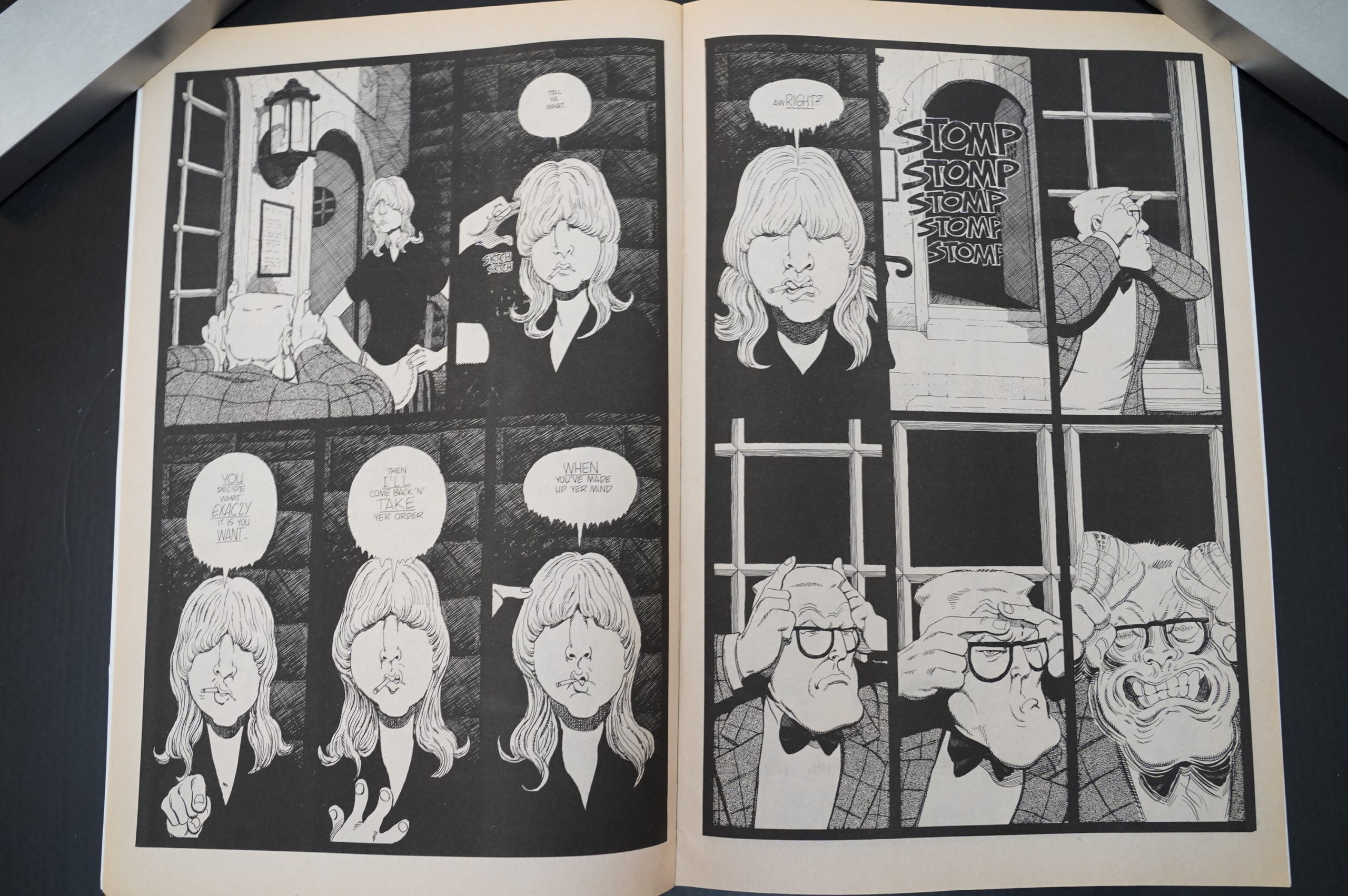
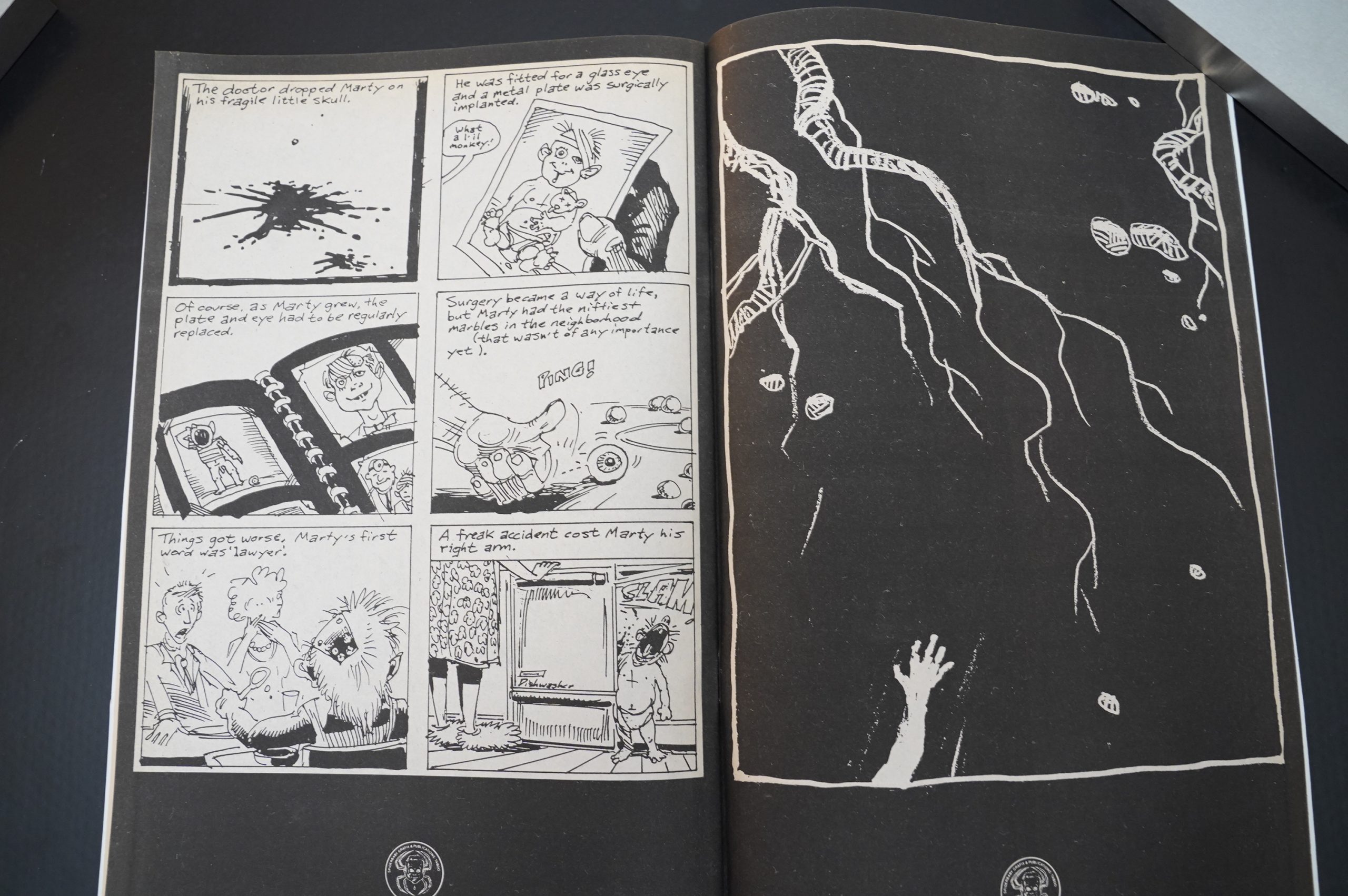
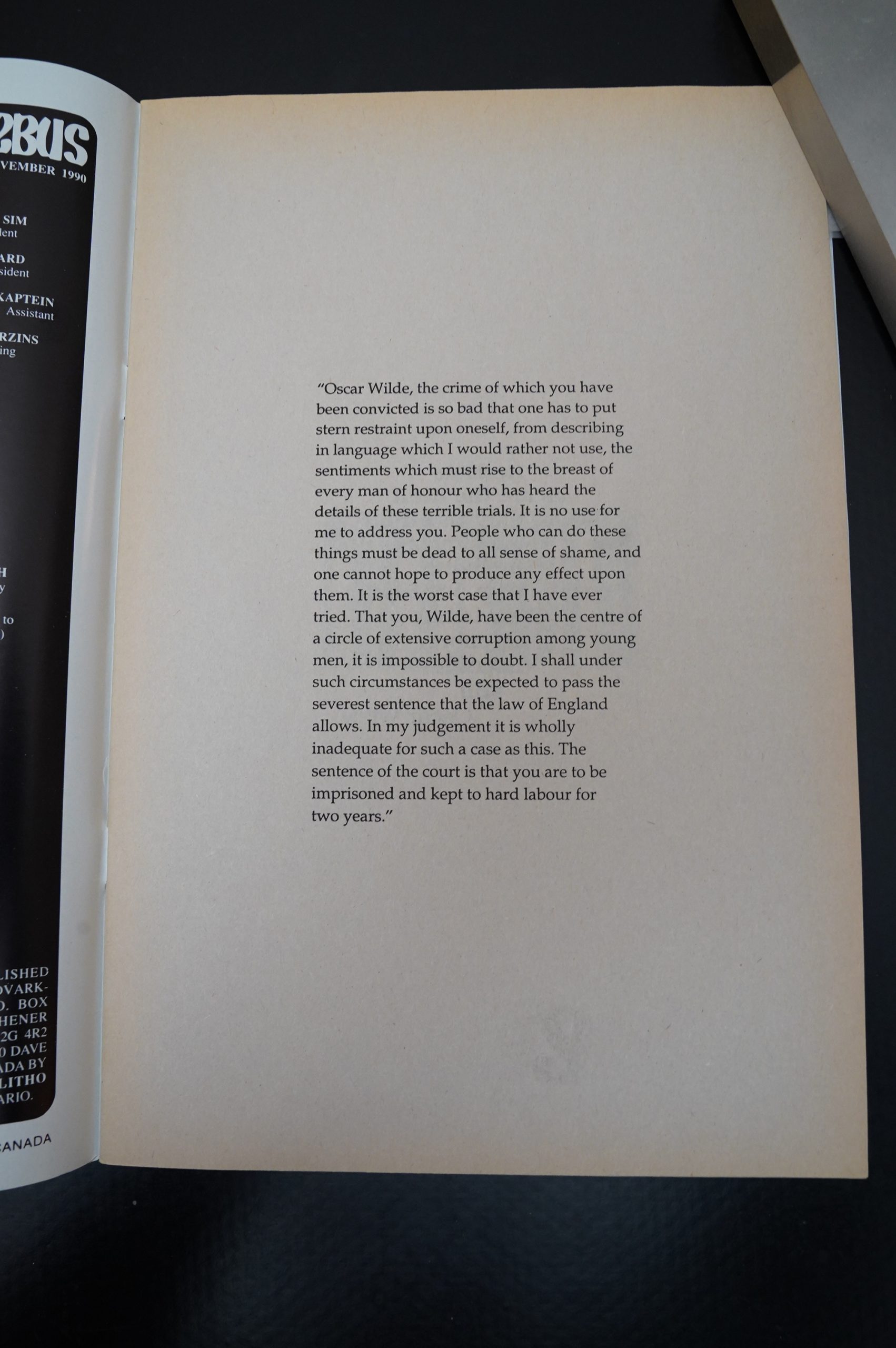
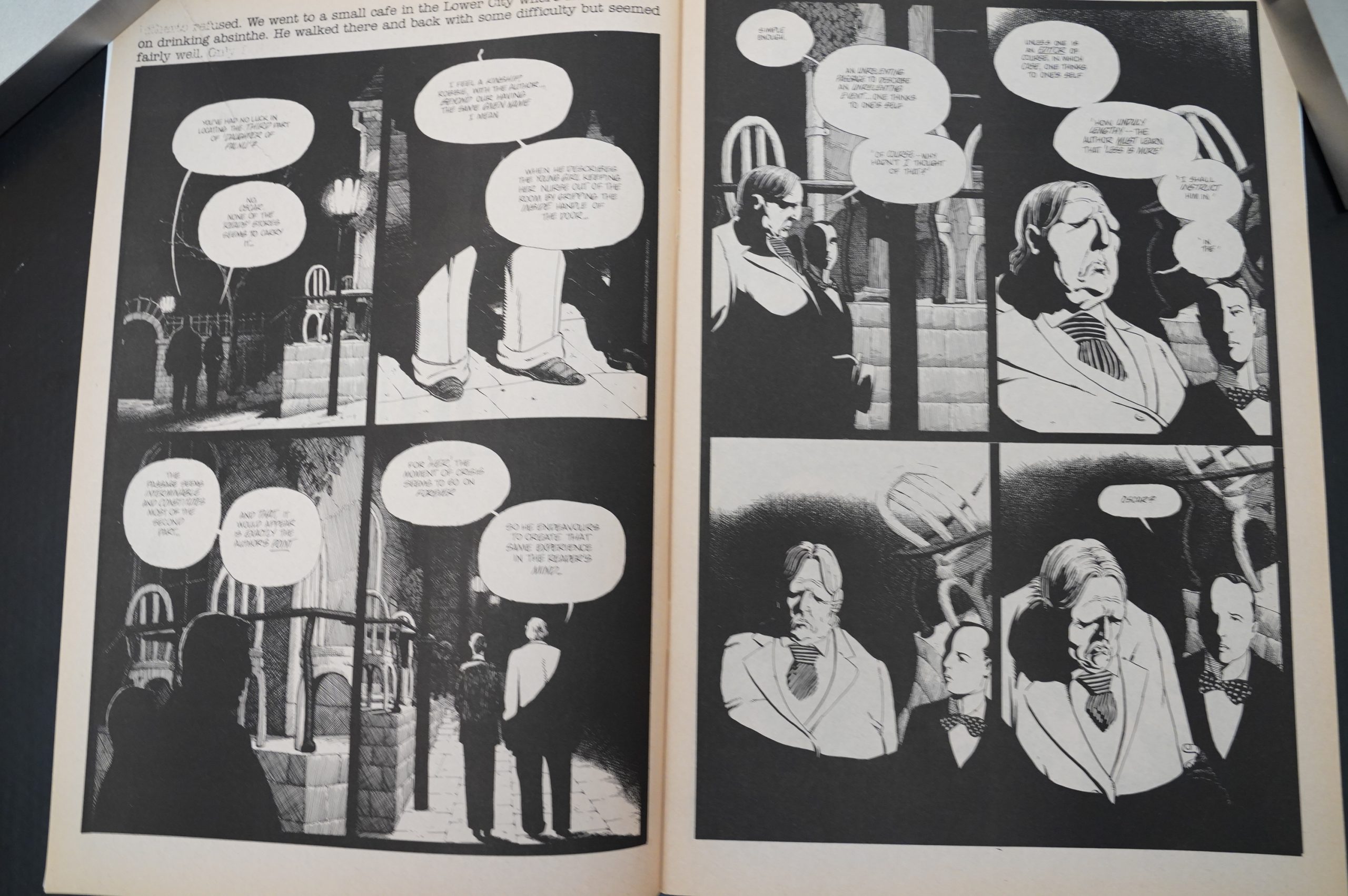
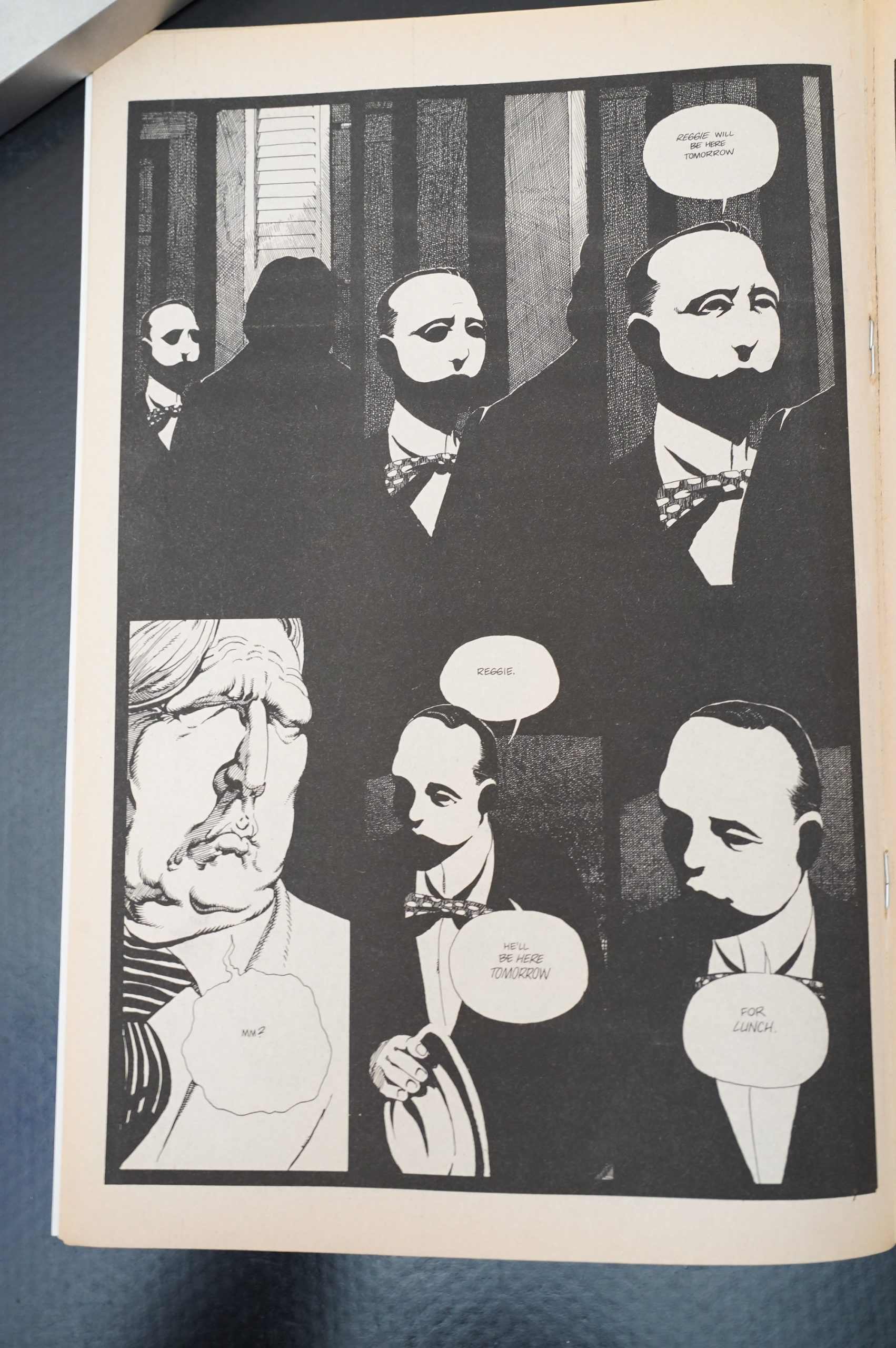

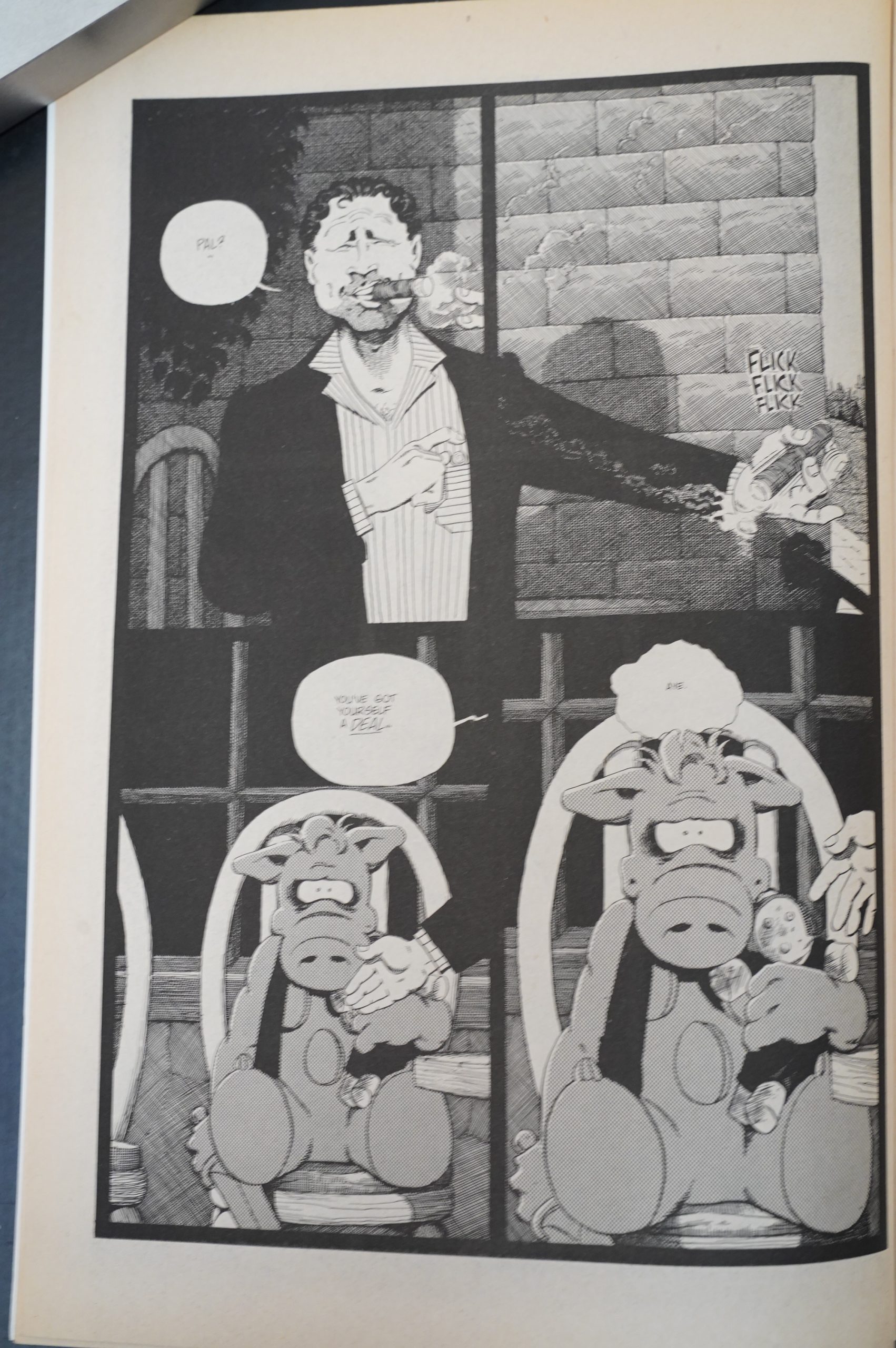
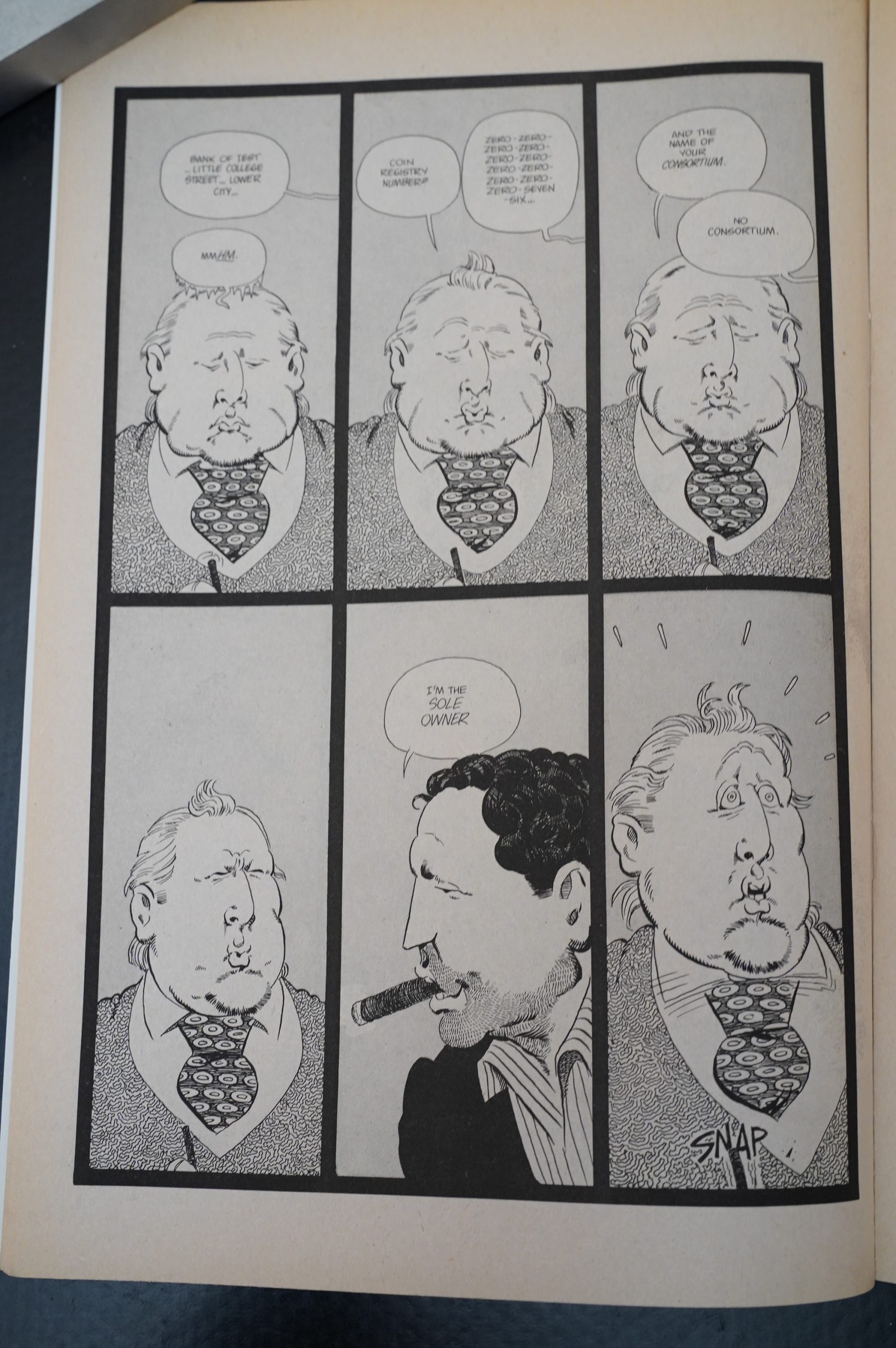
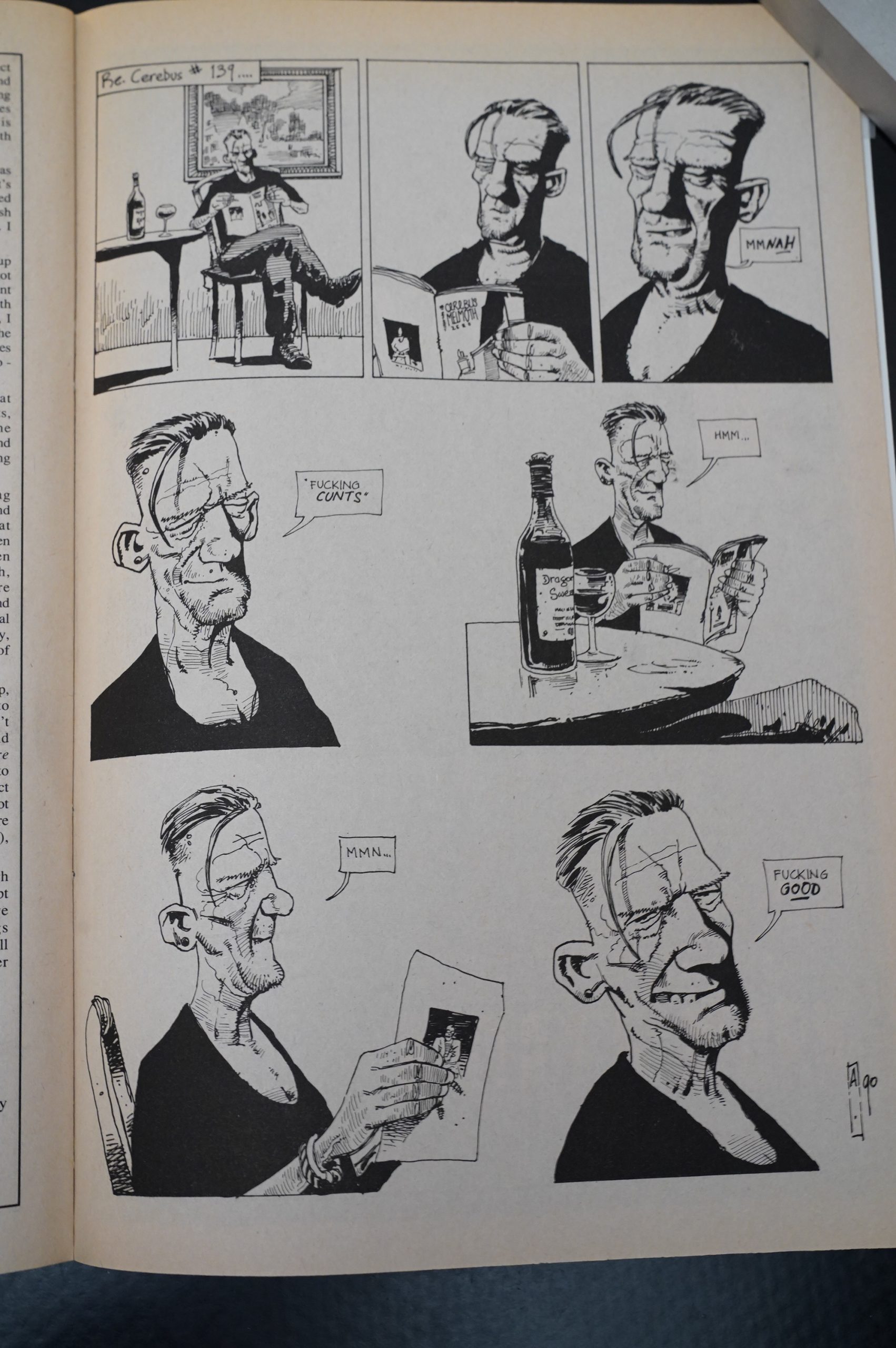
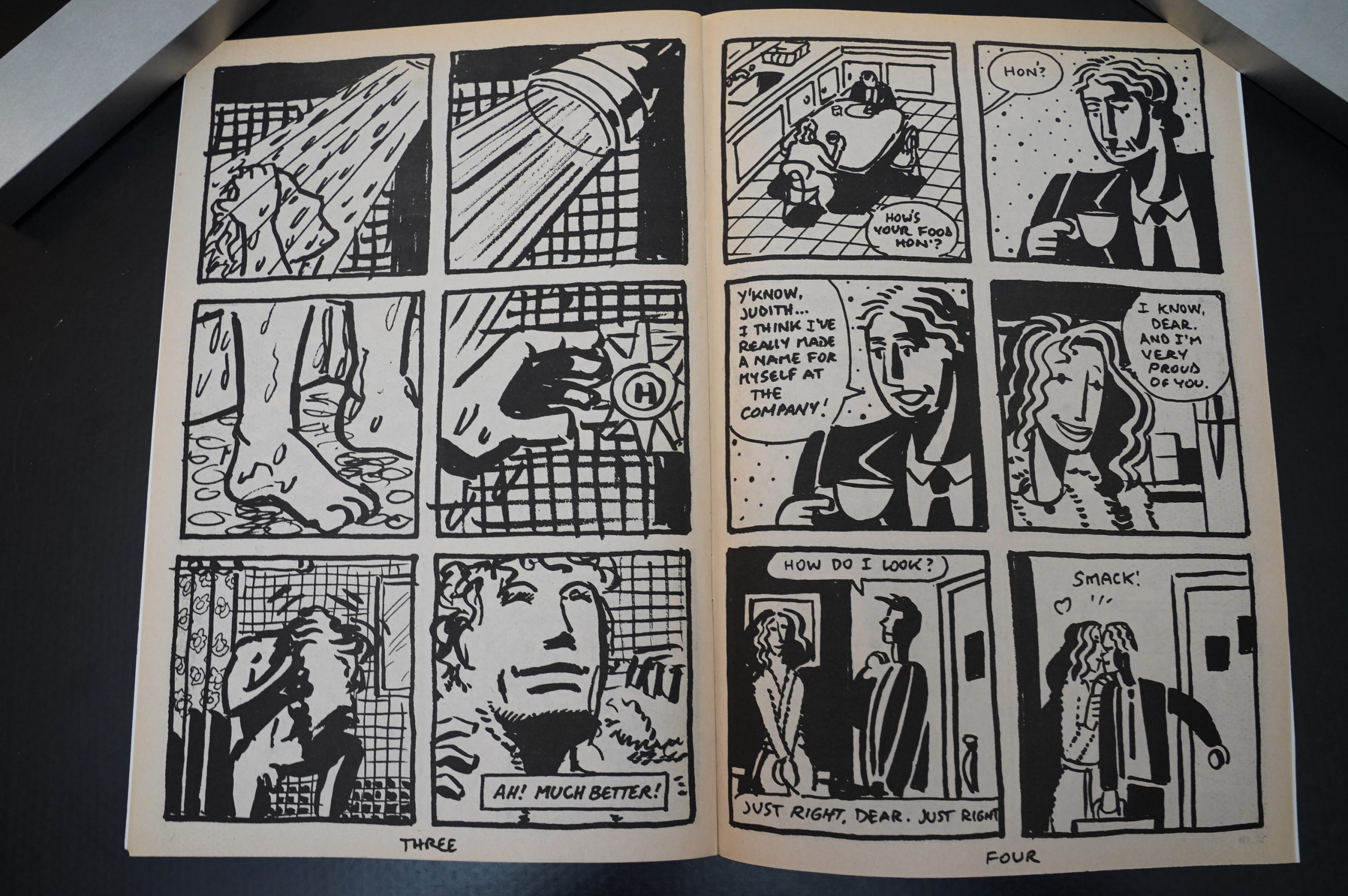
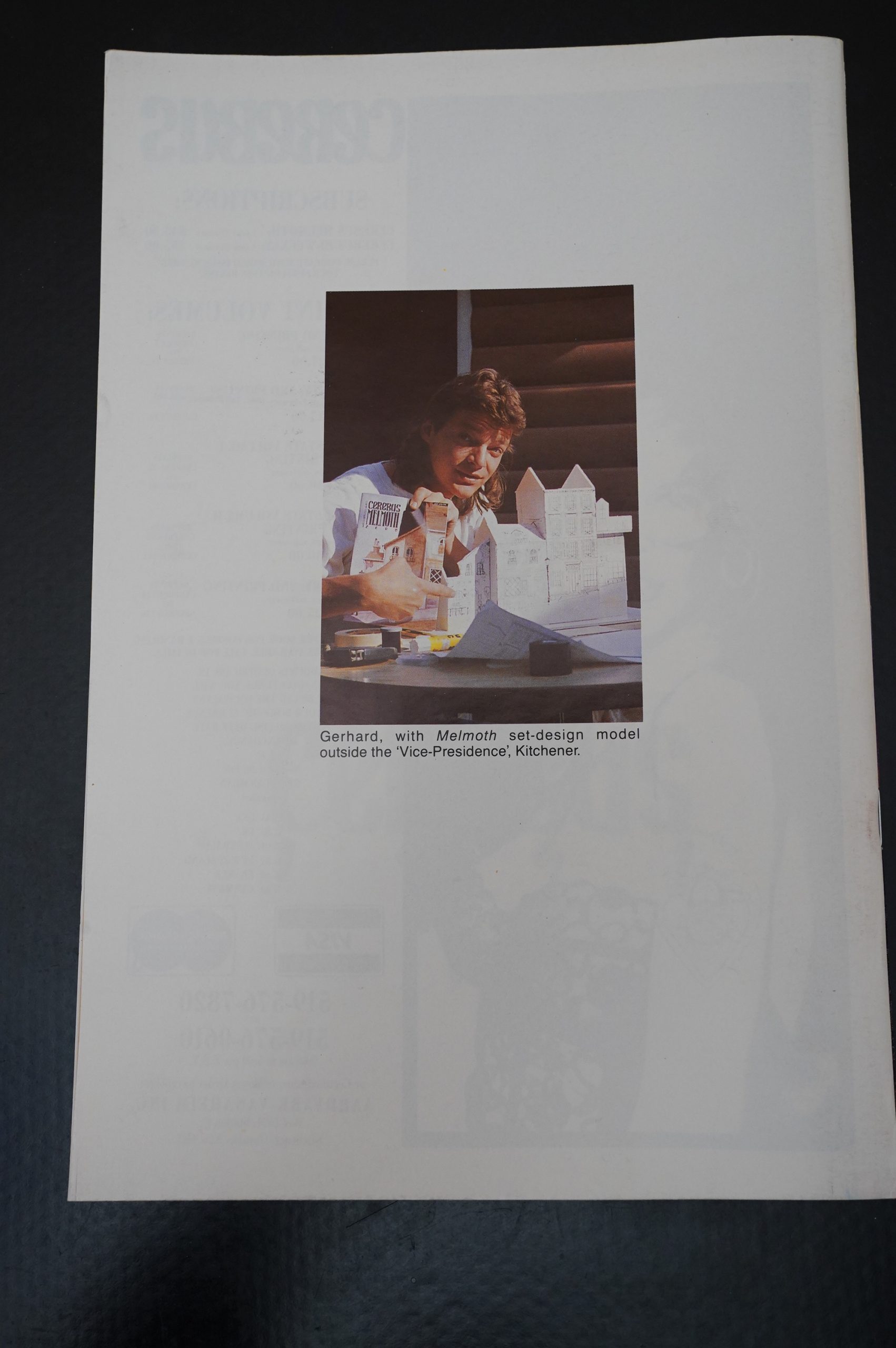
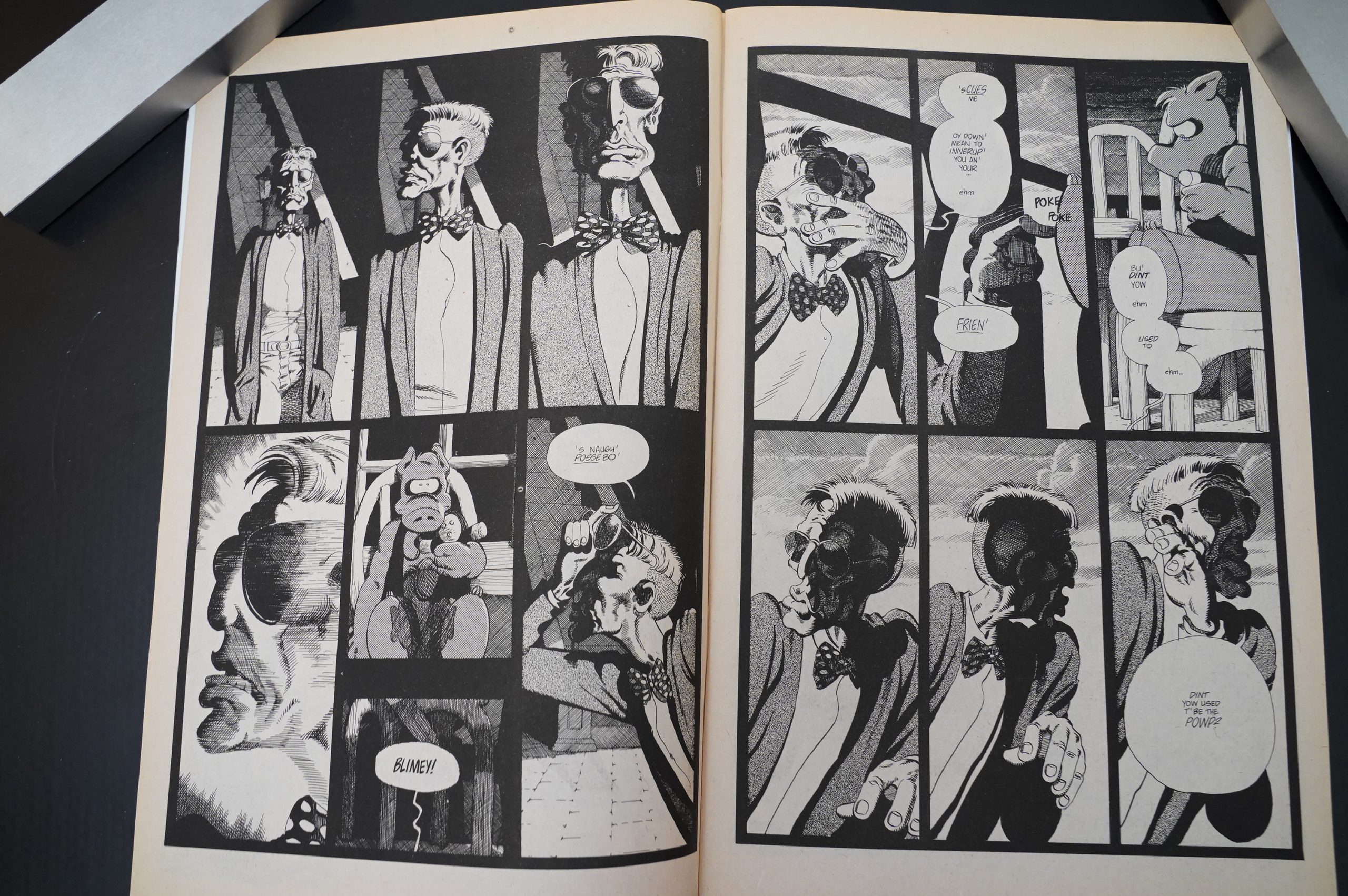
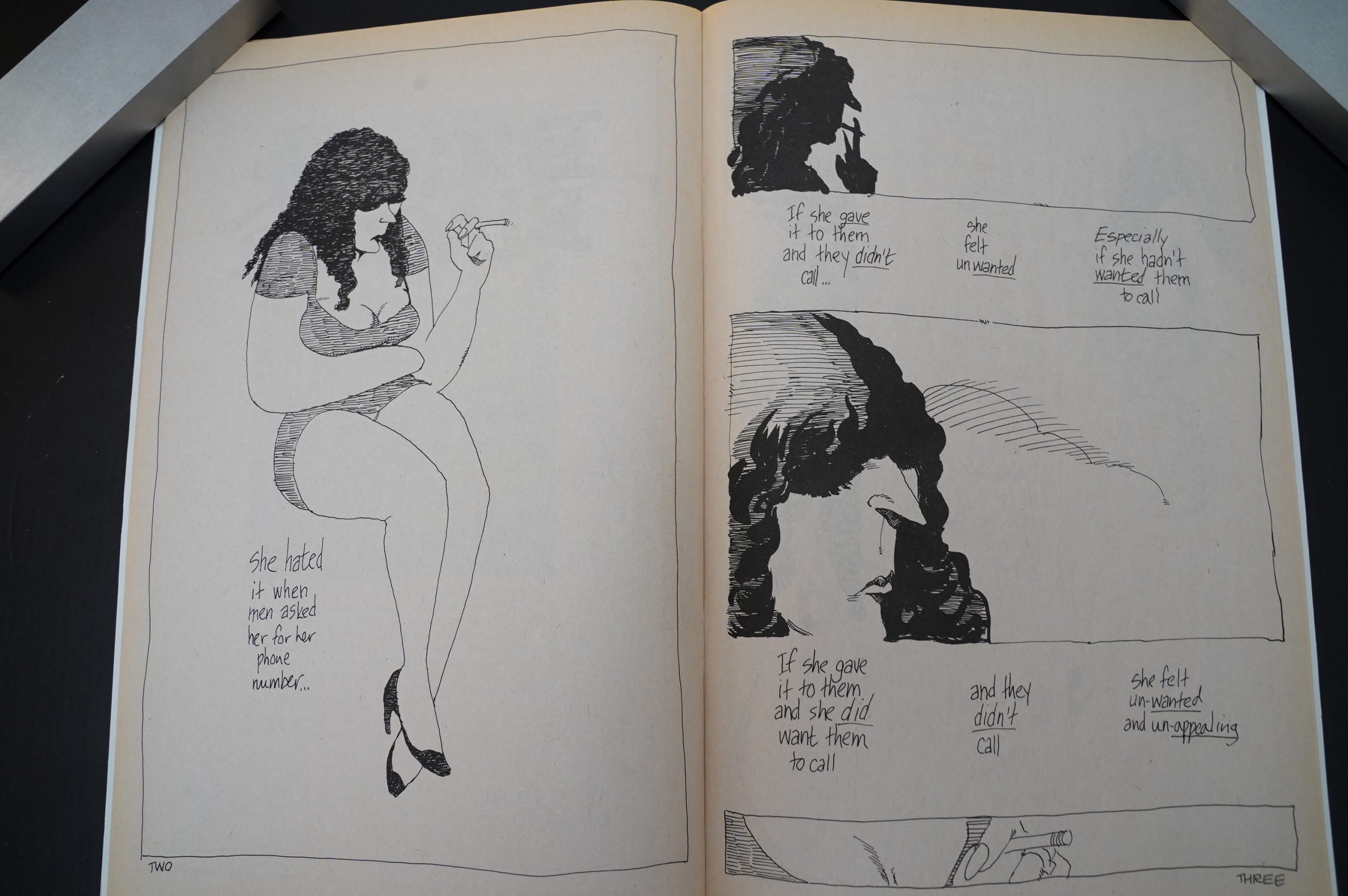
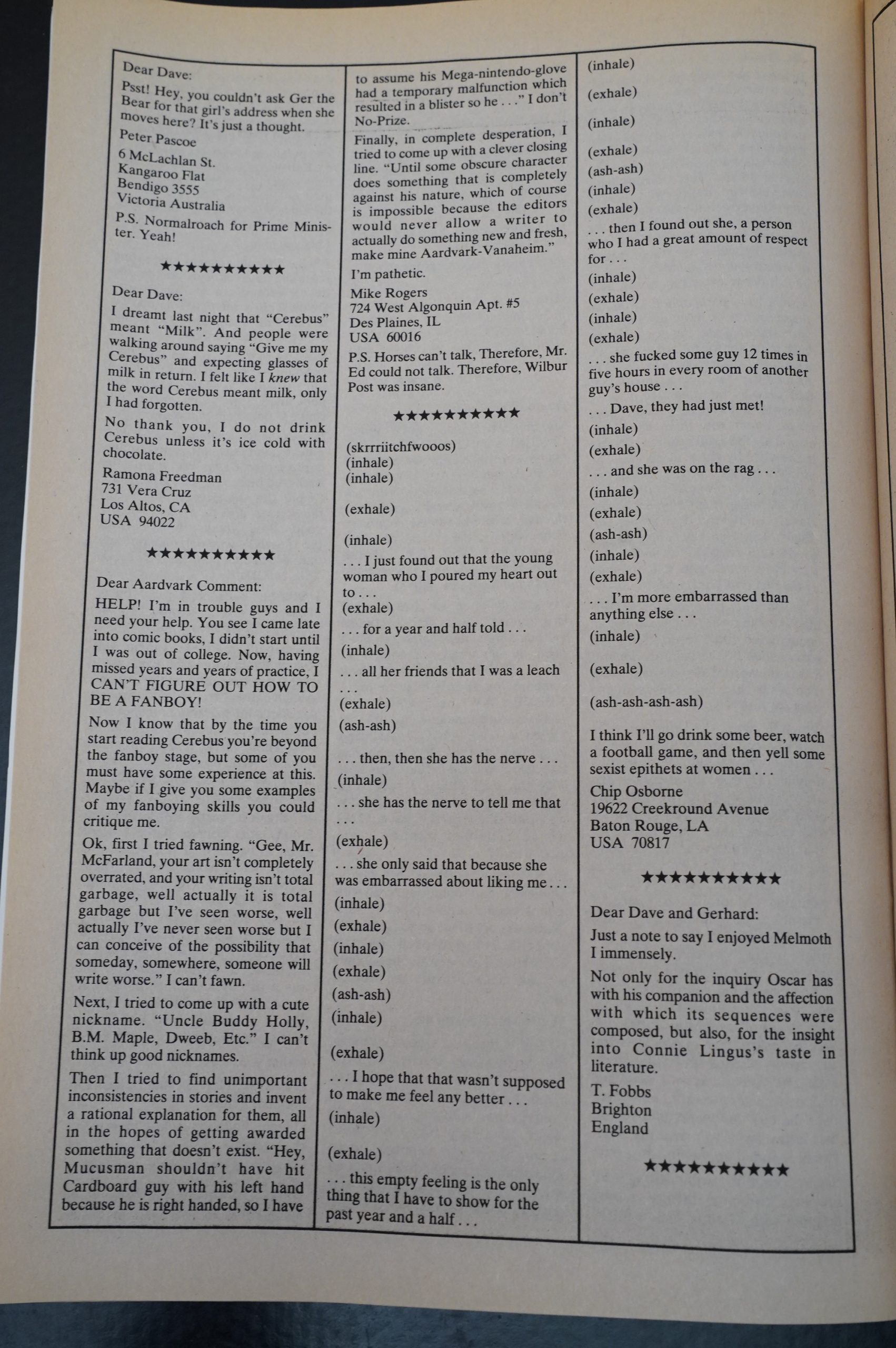
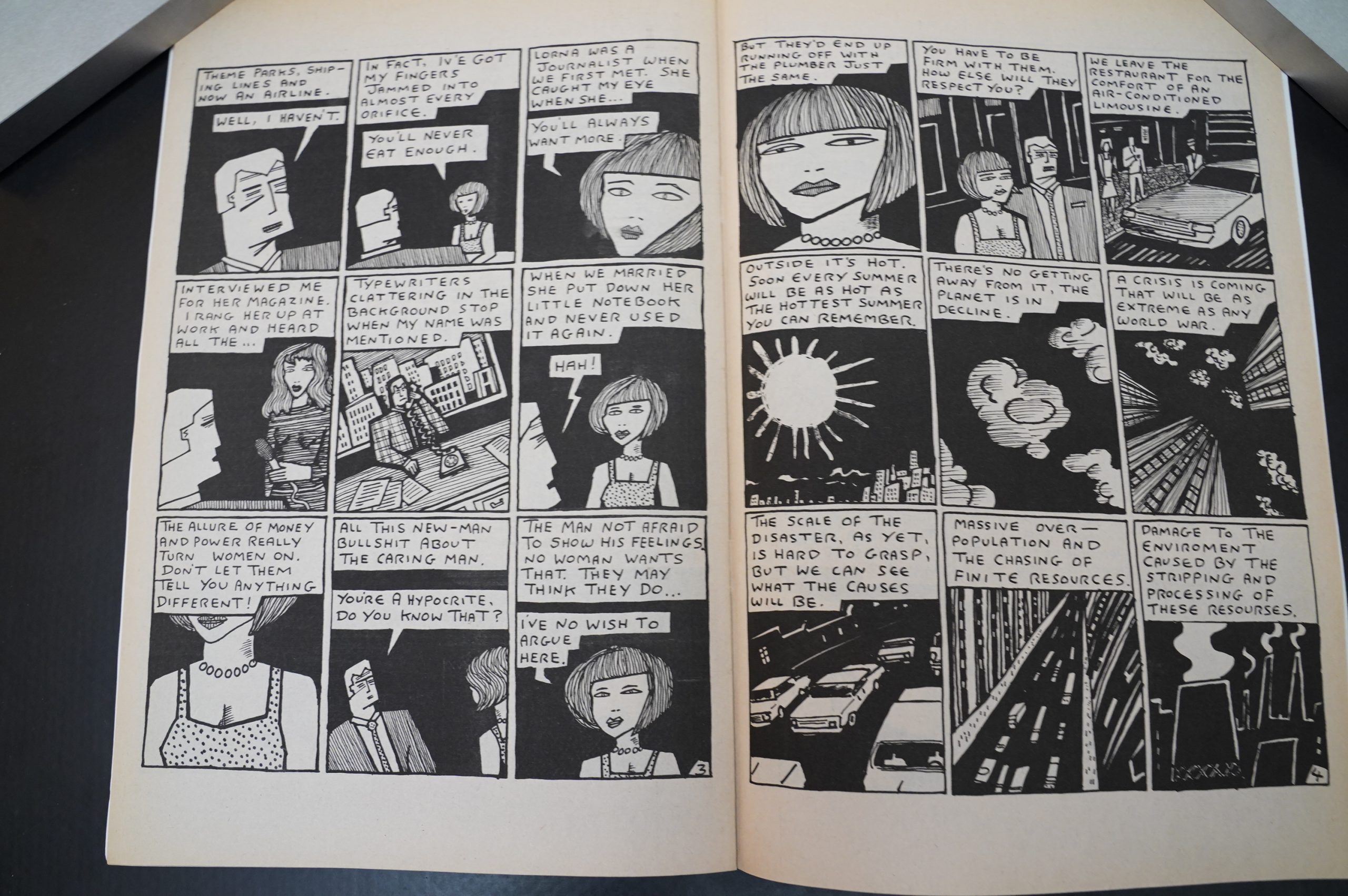
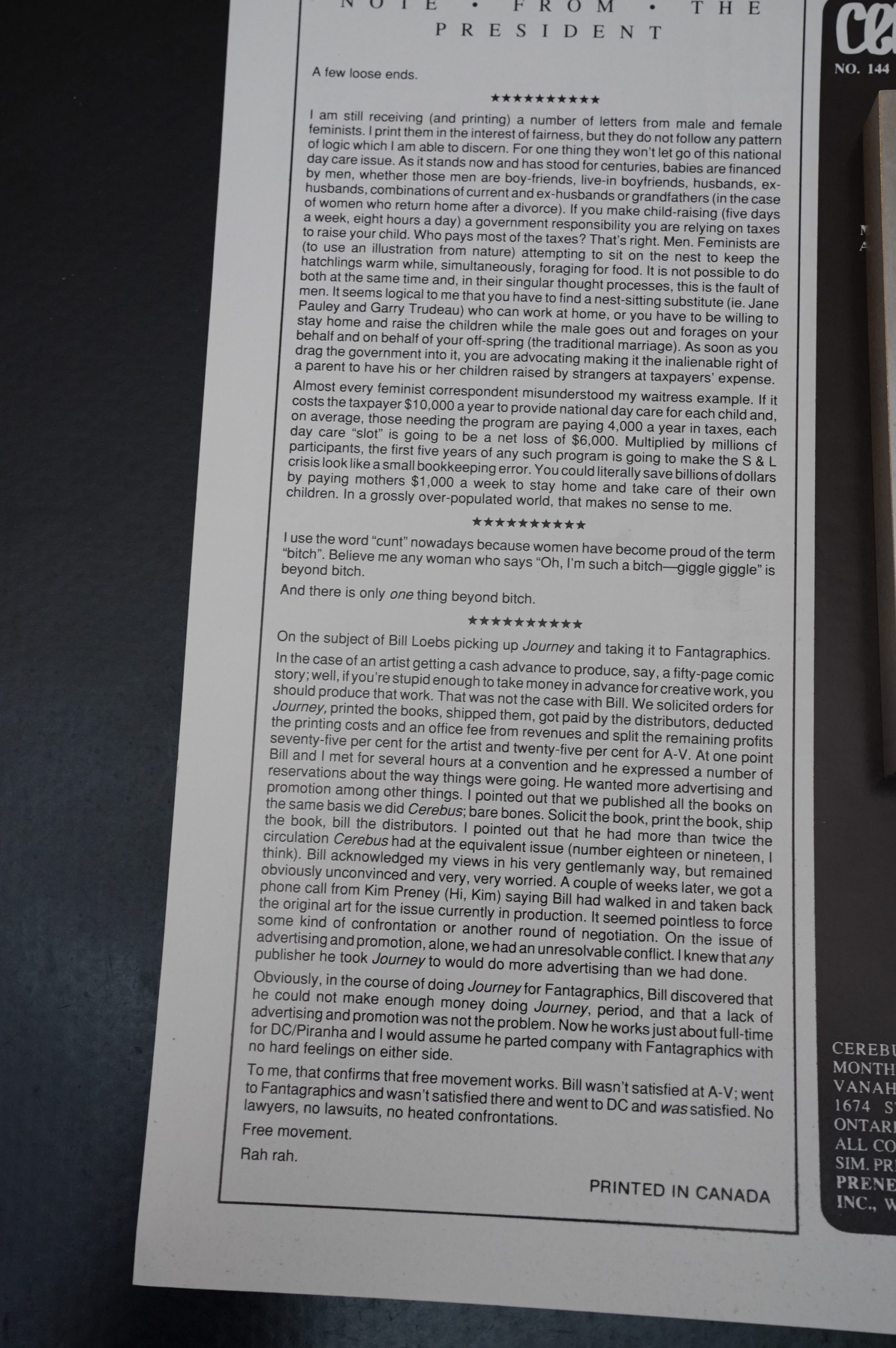
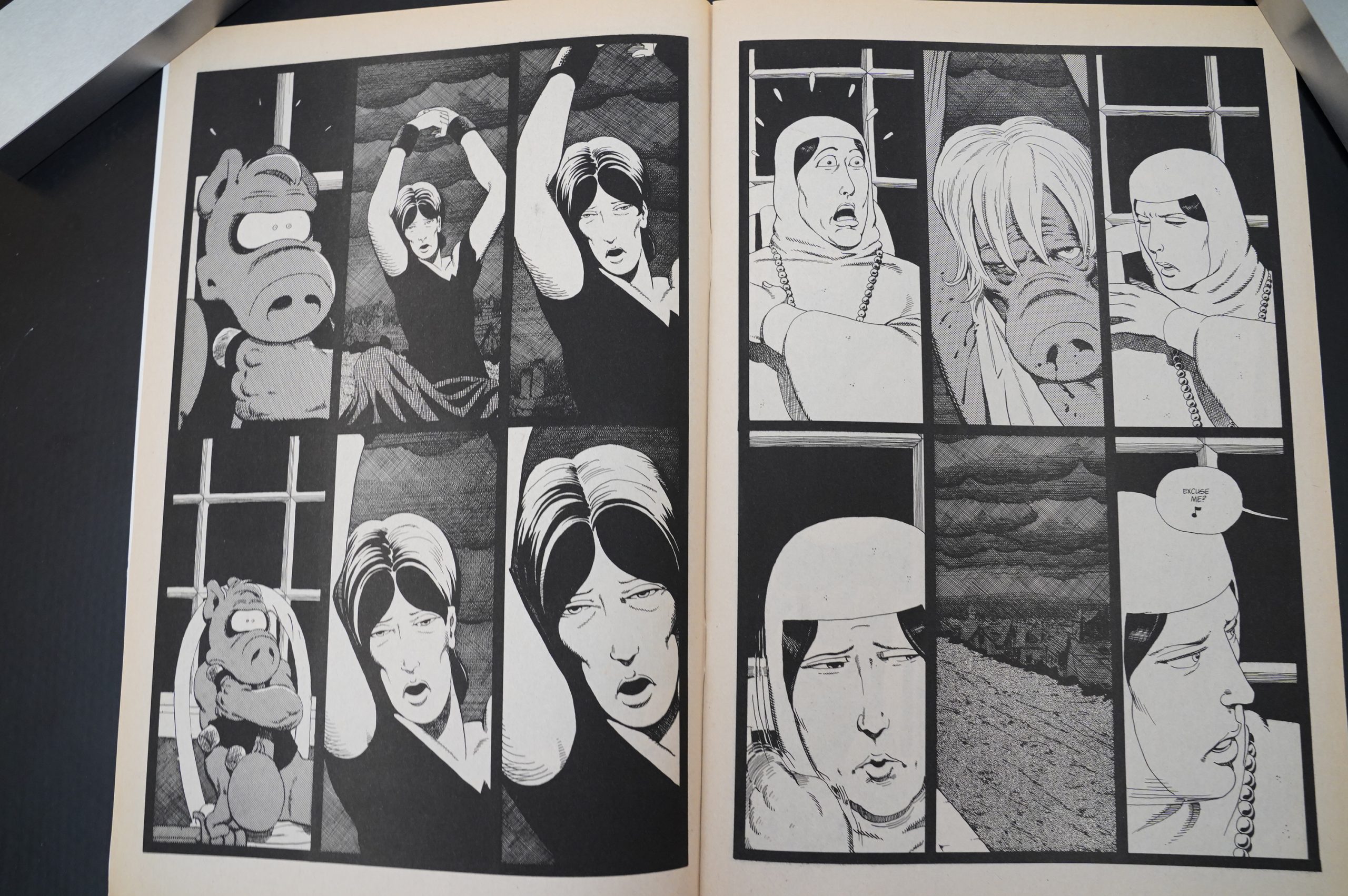
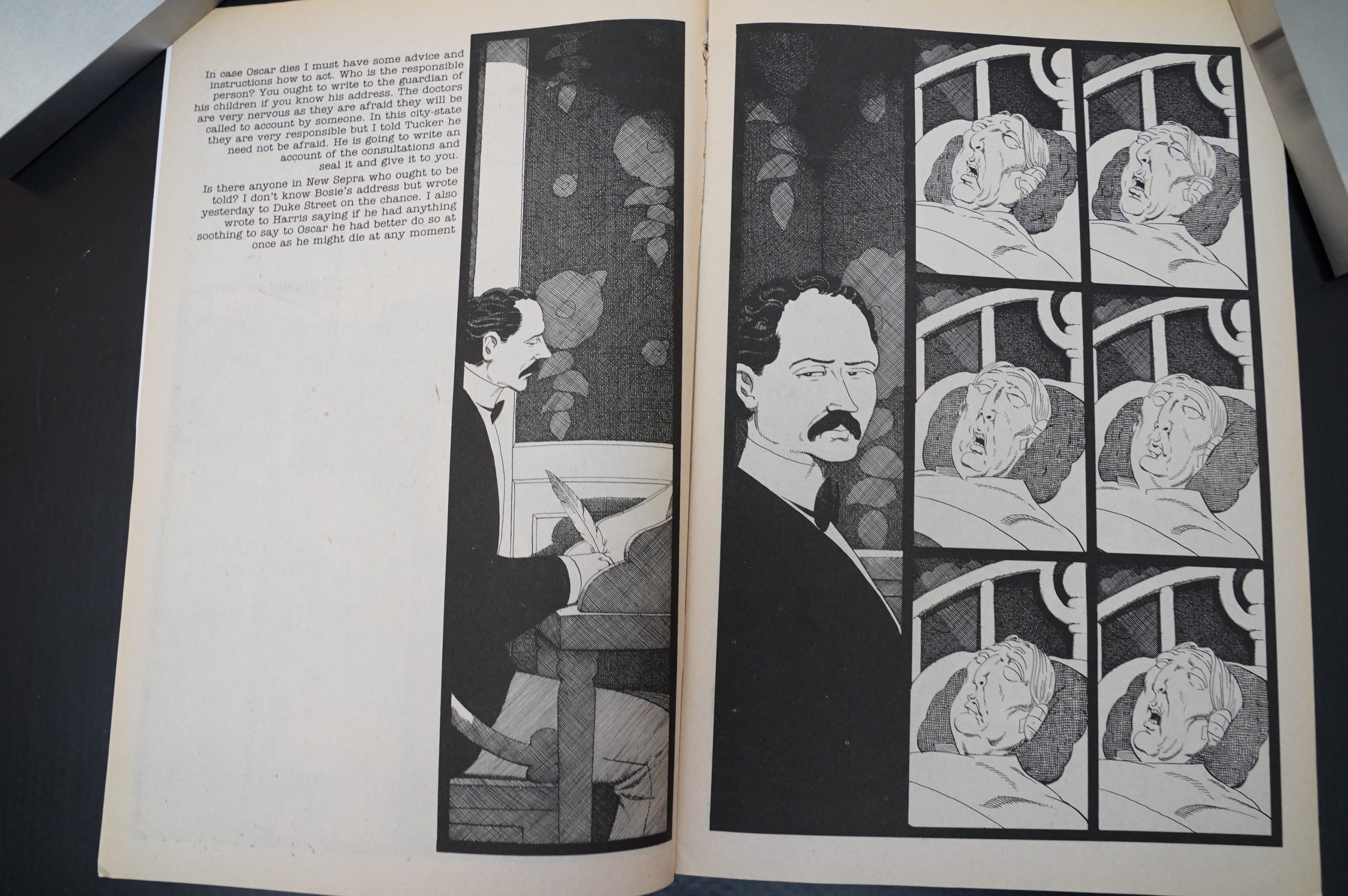
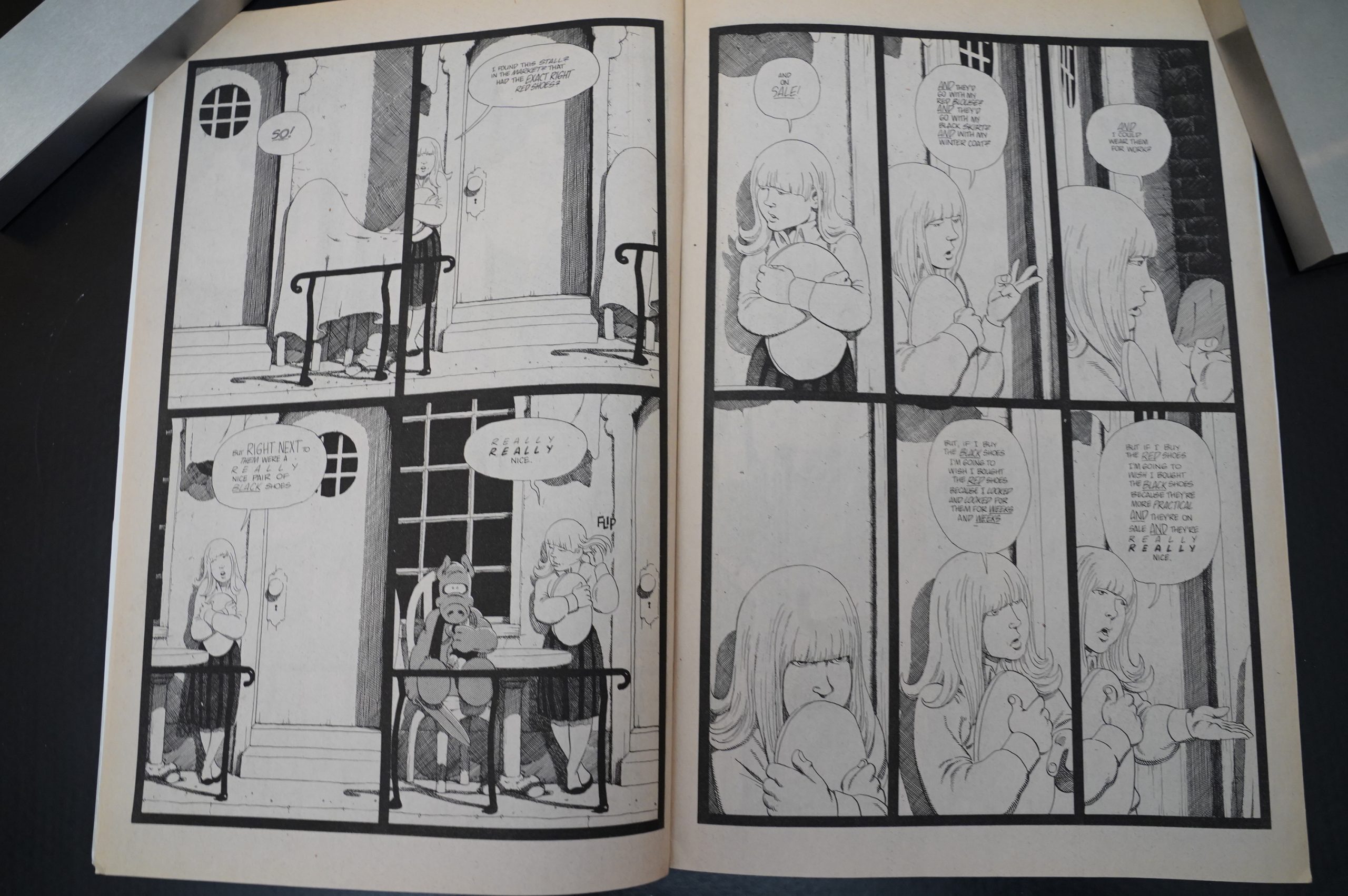
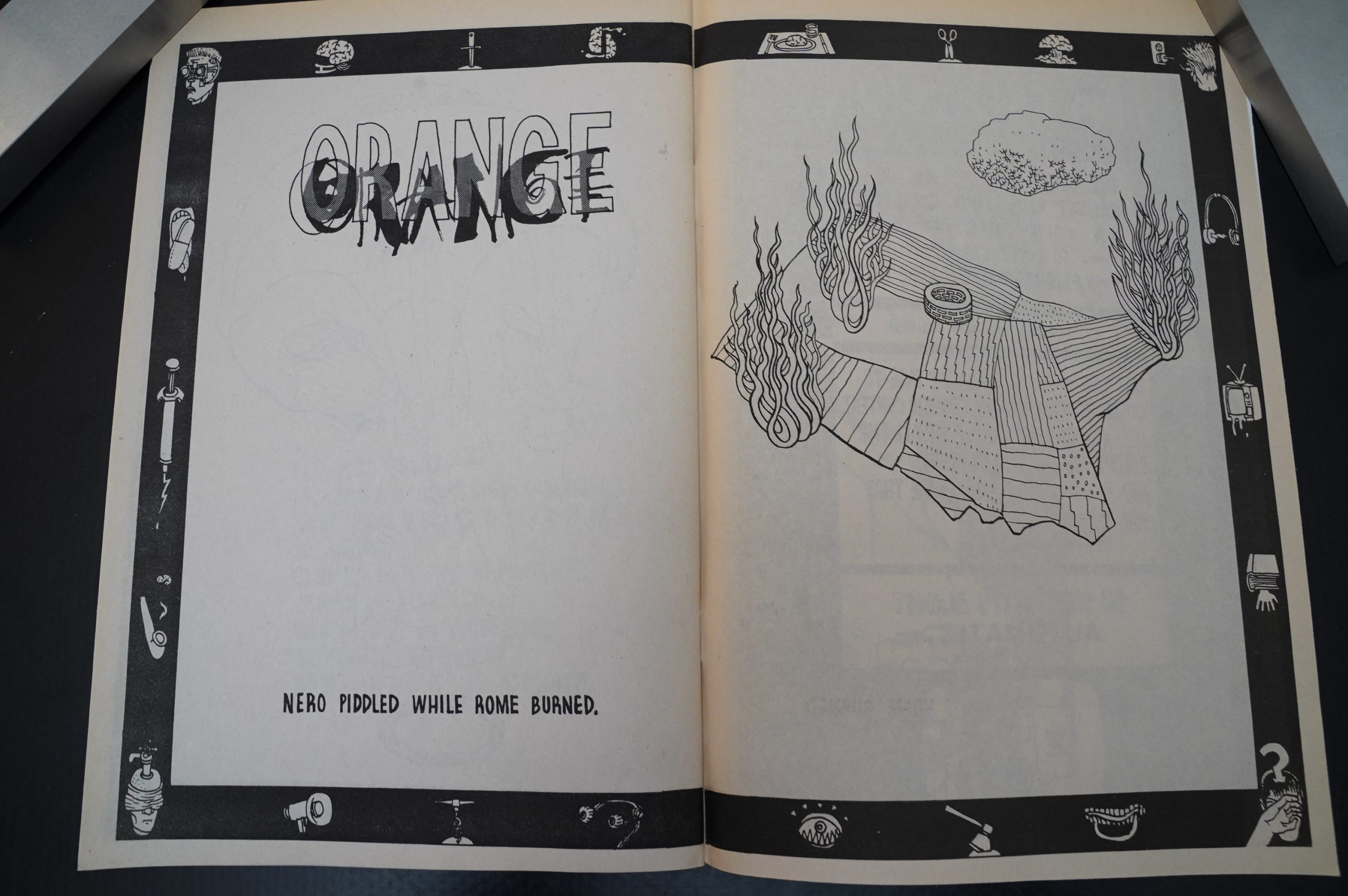
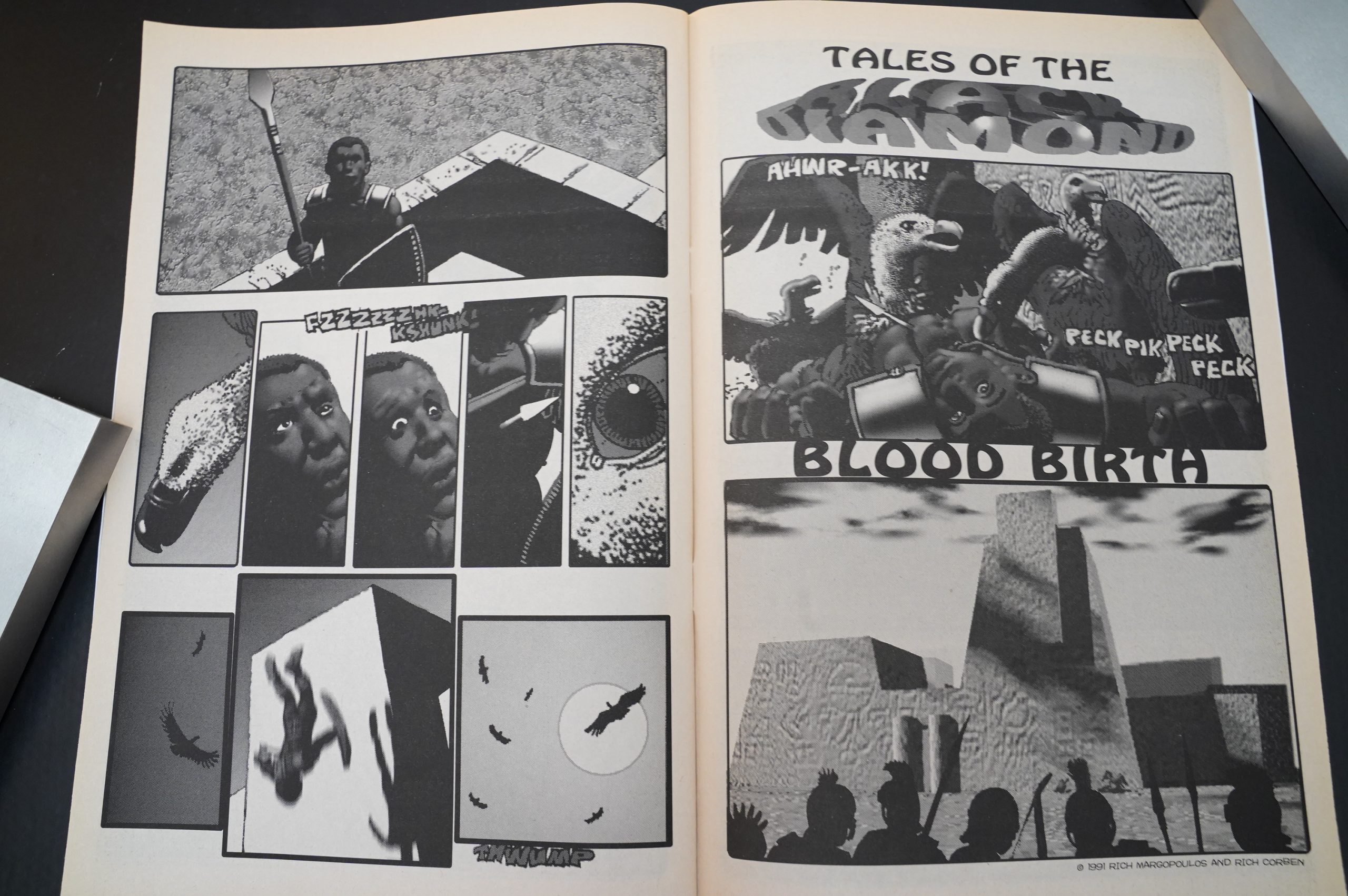
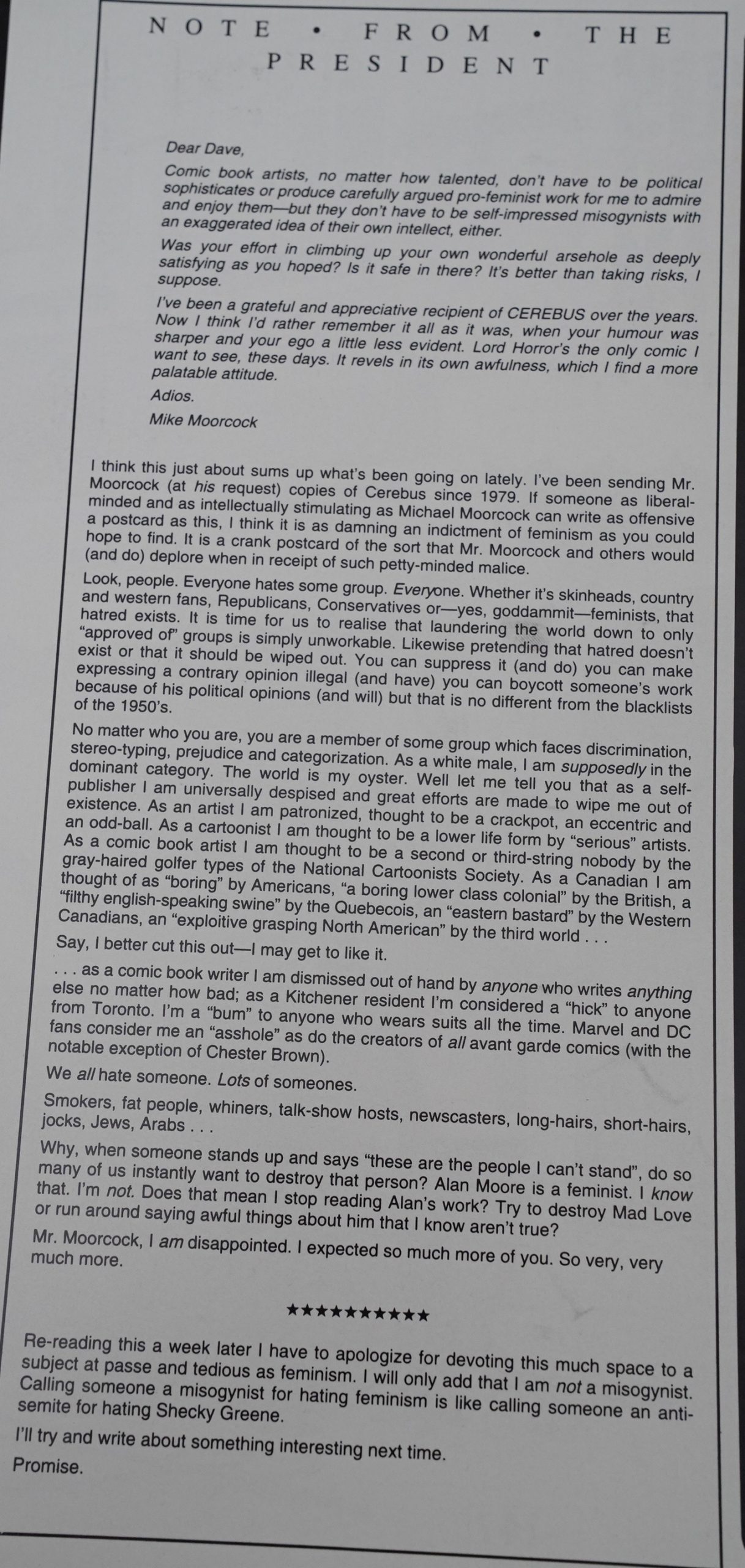
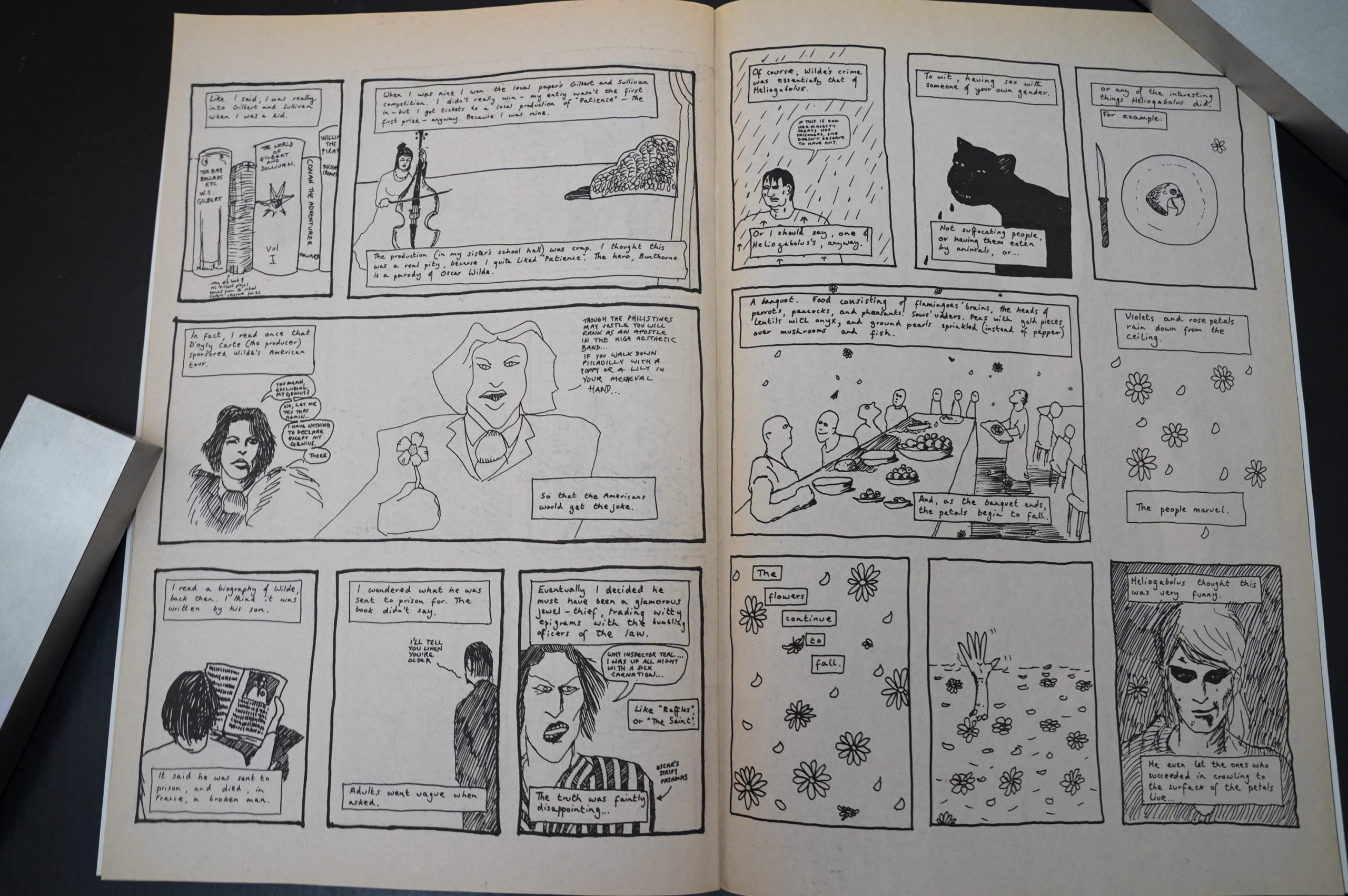
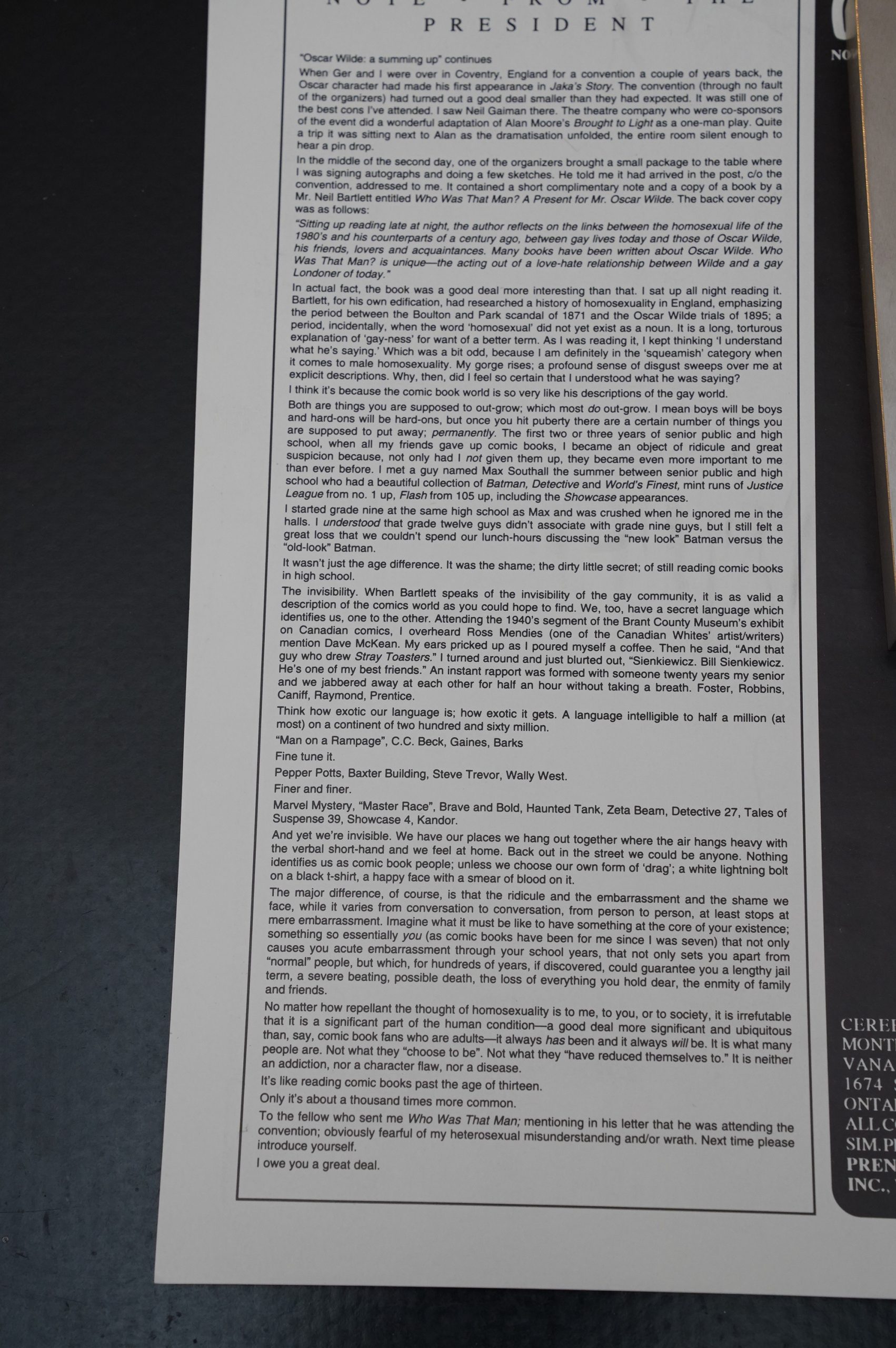
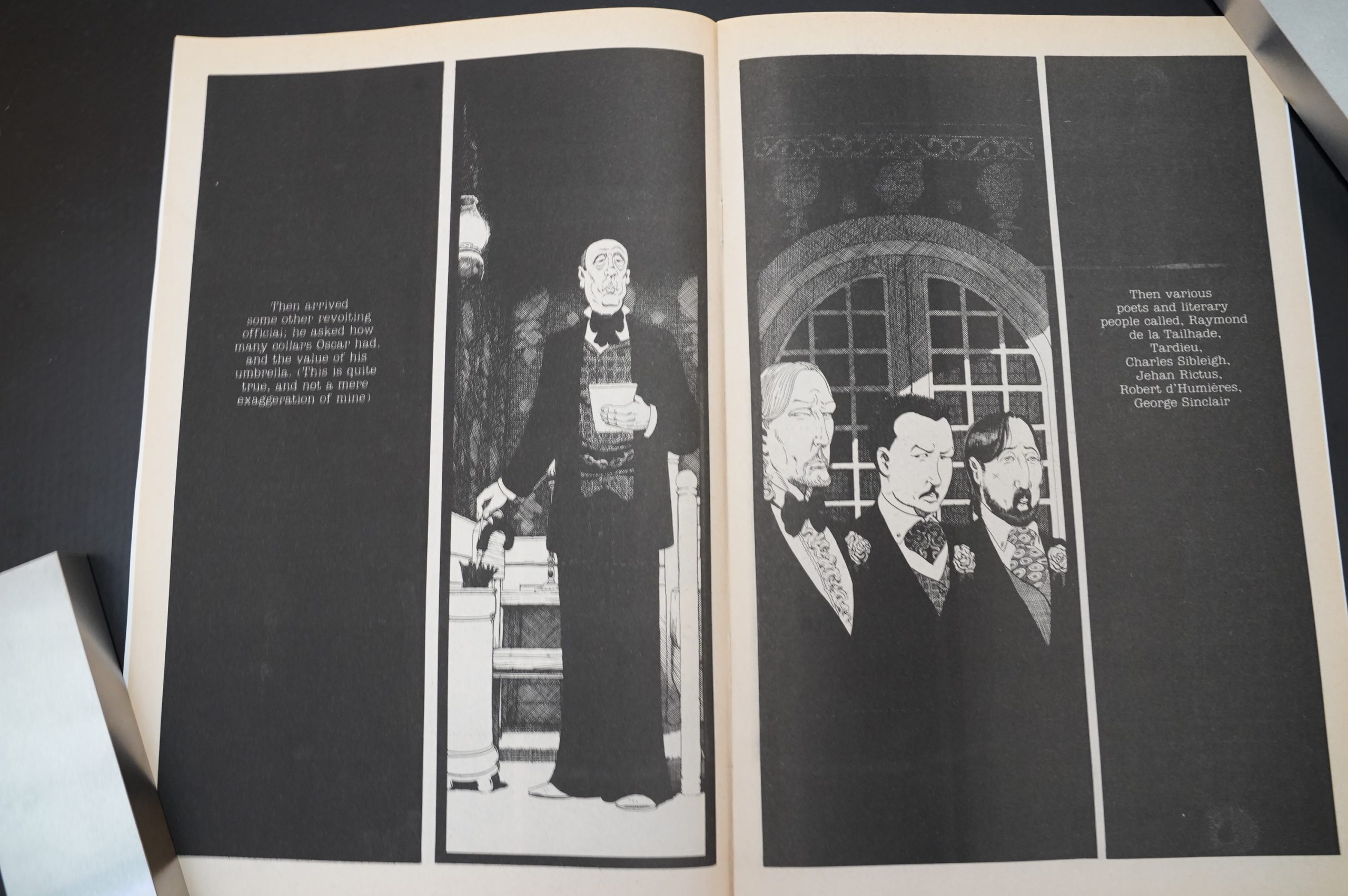
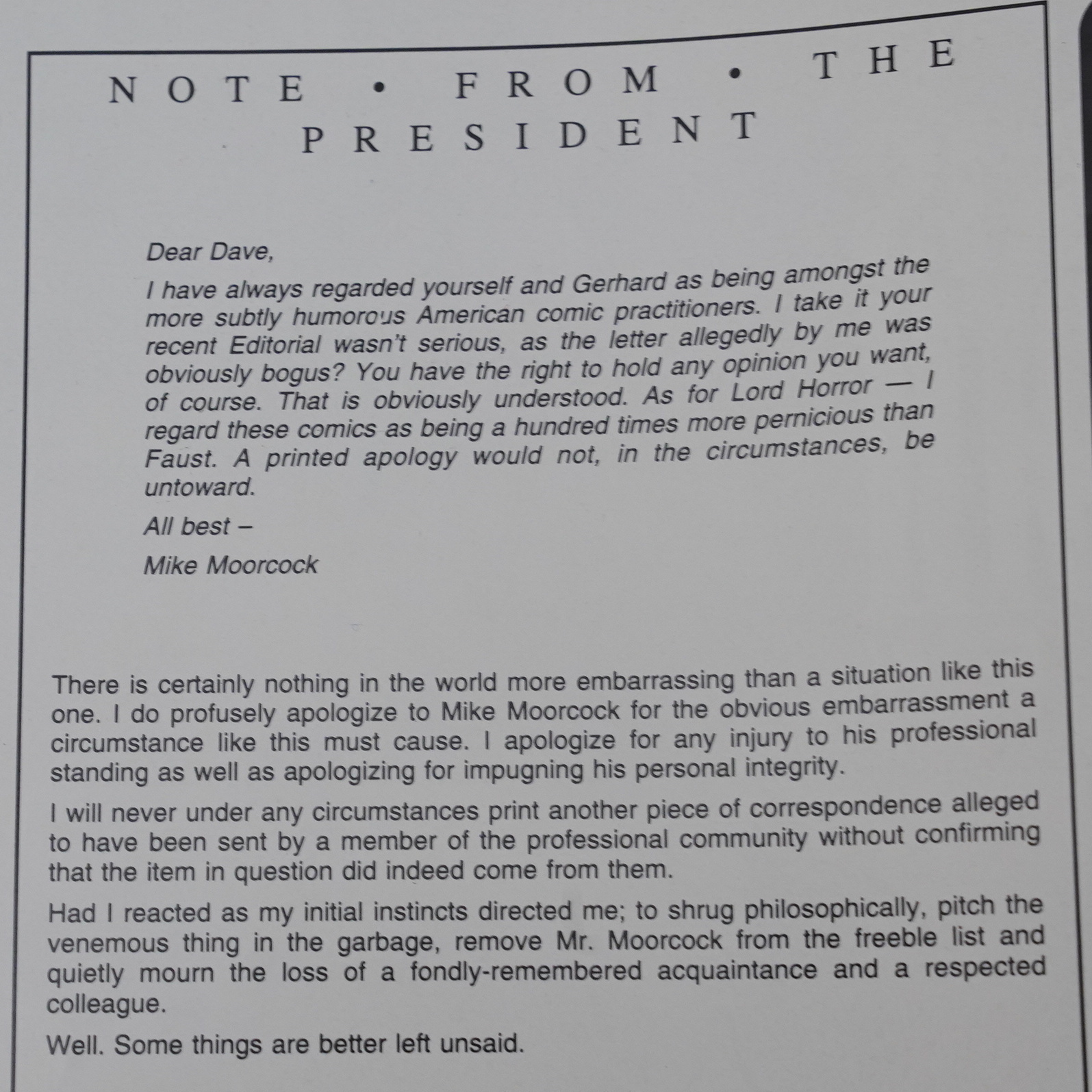
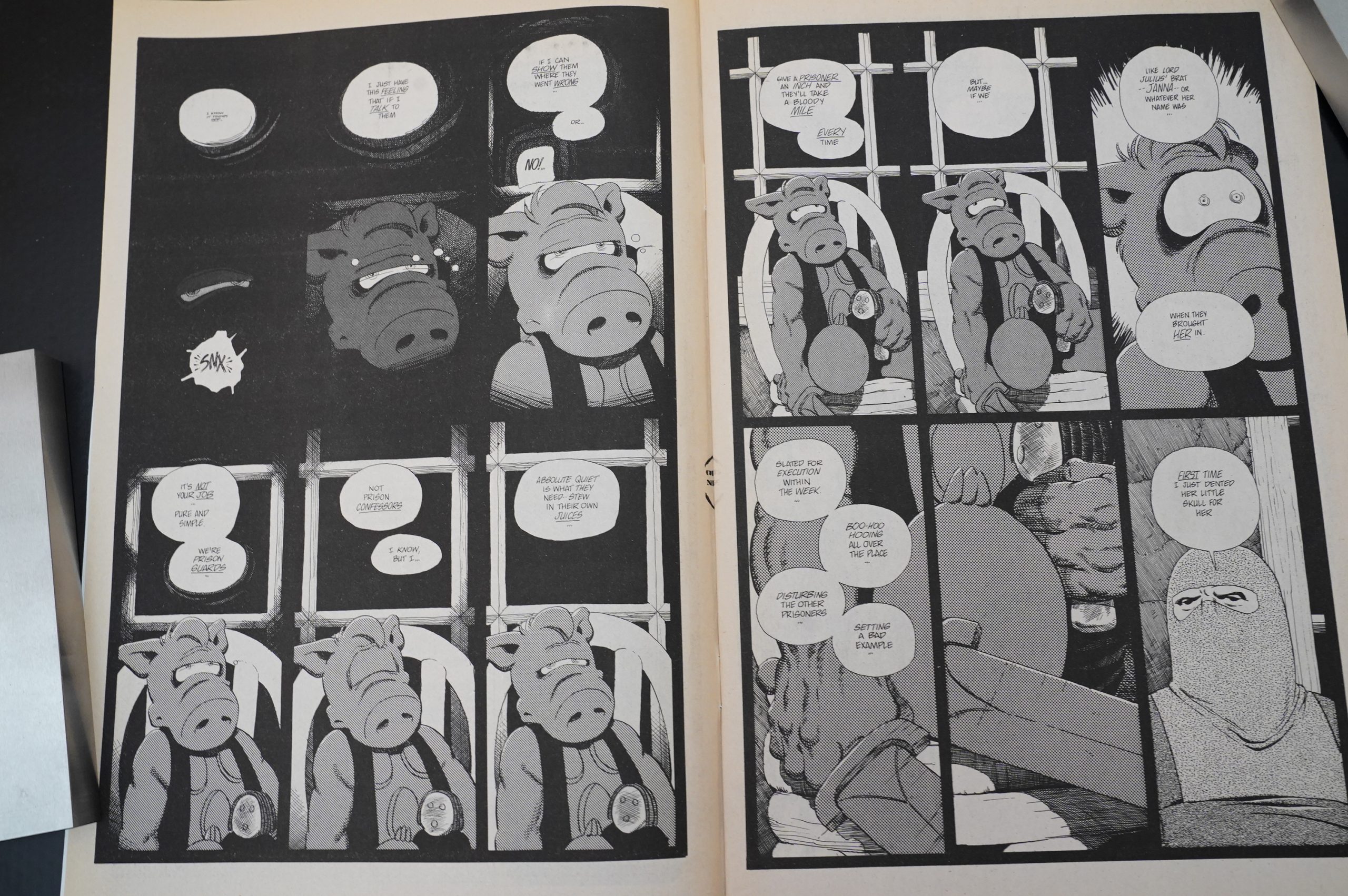
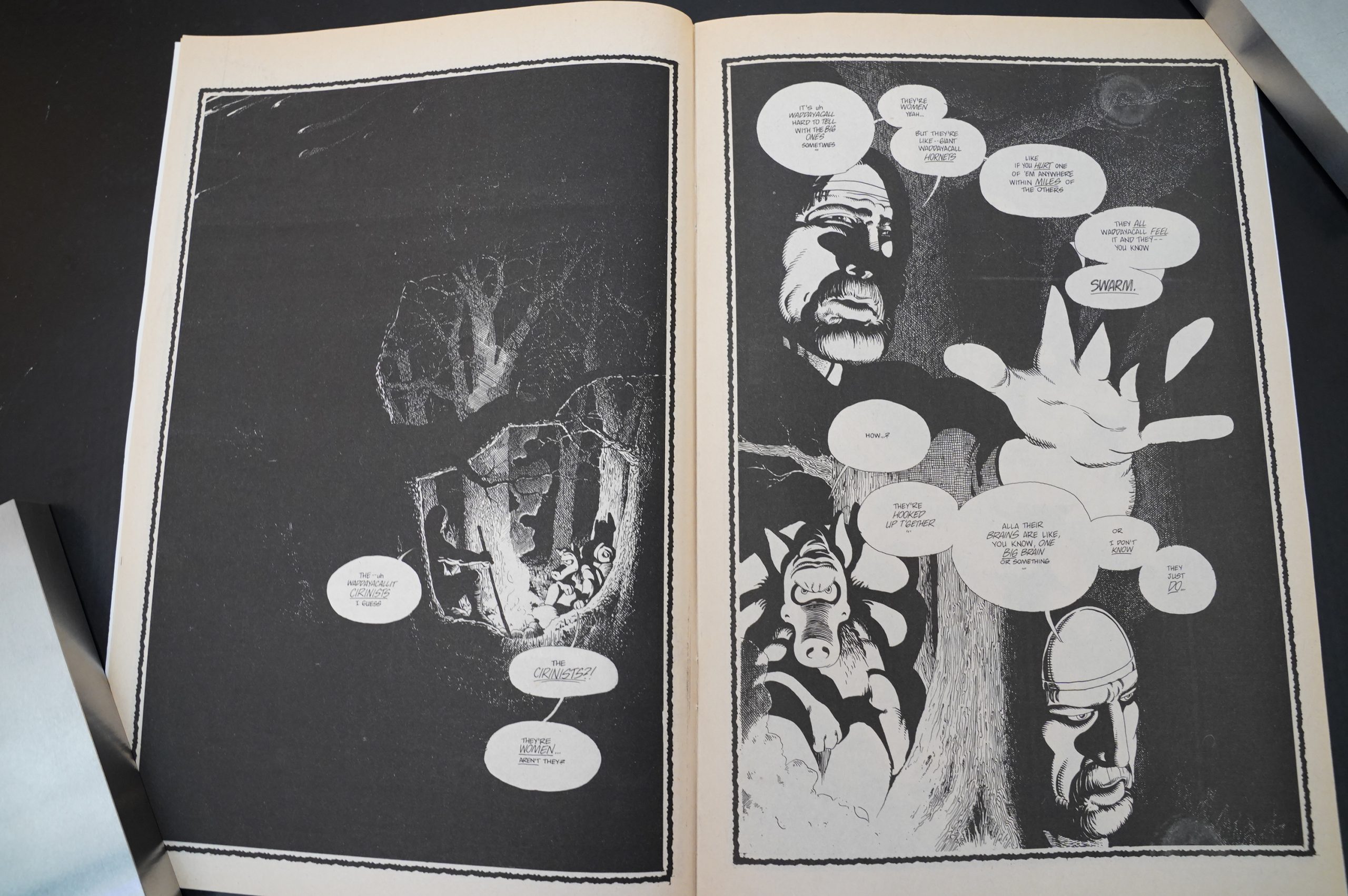
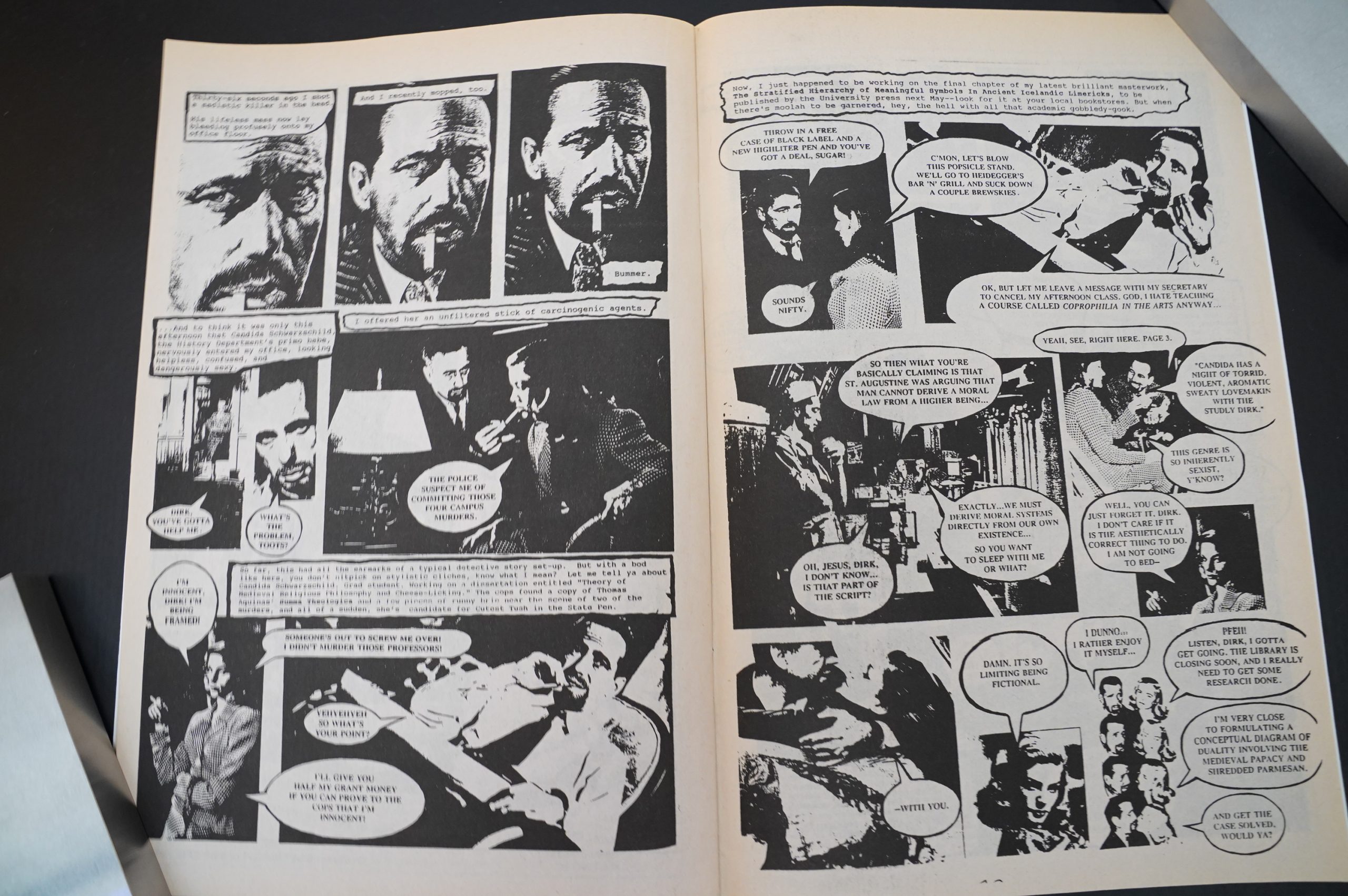
One thought on “A&R1990: Cerebus #139-150”